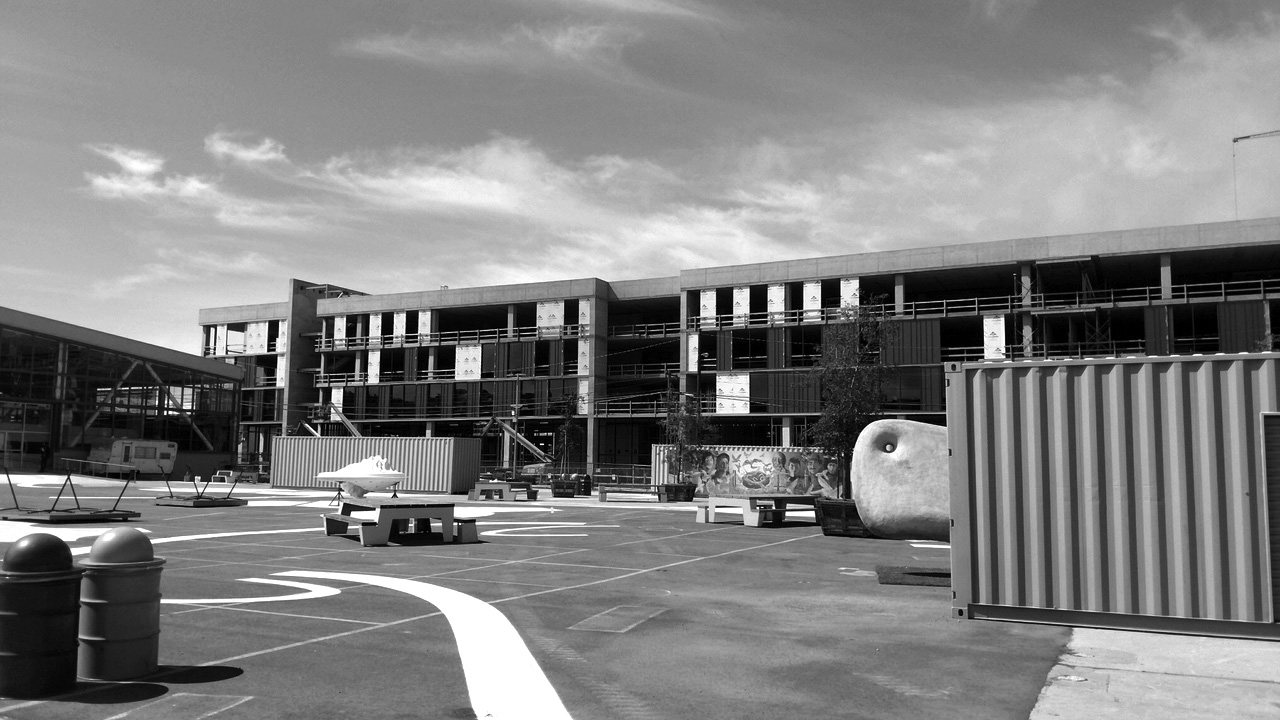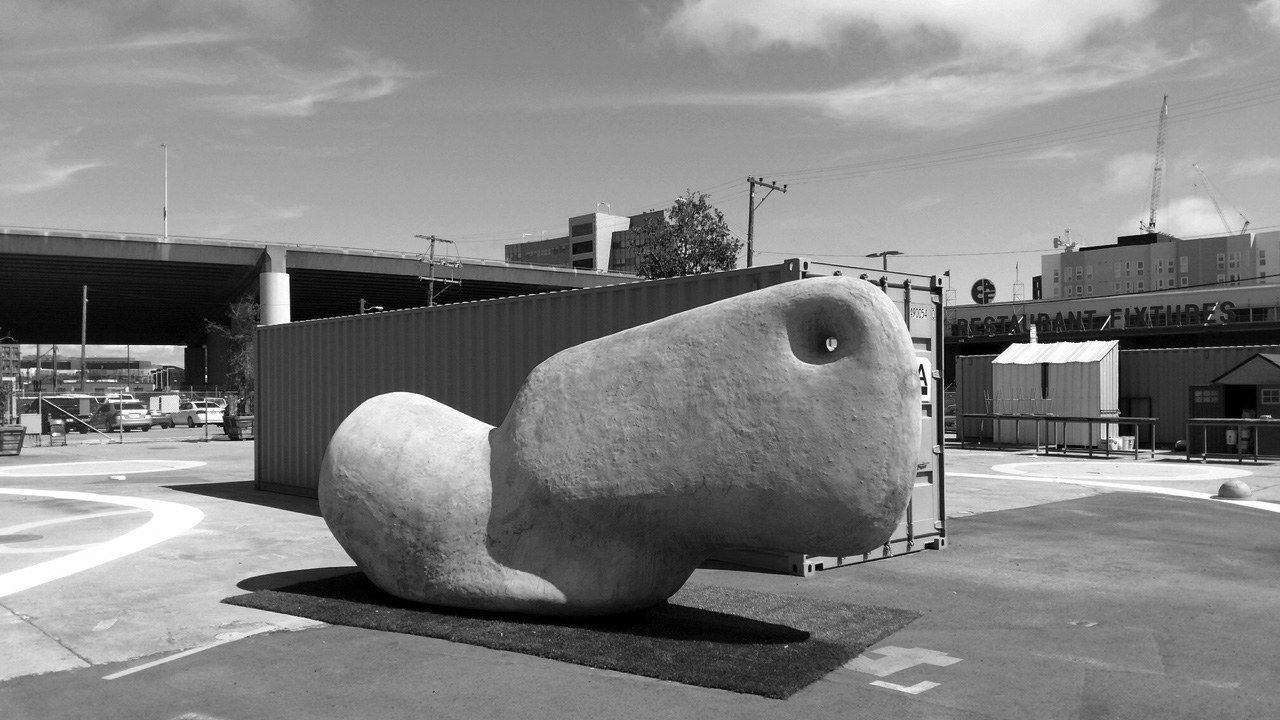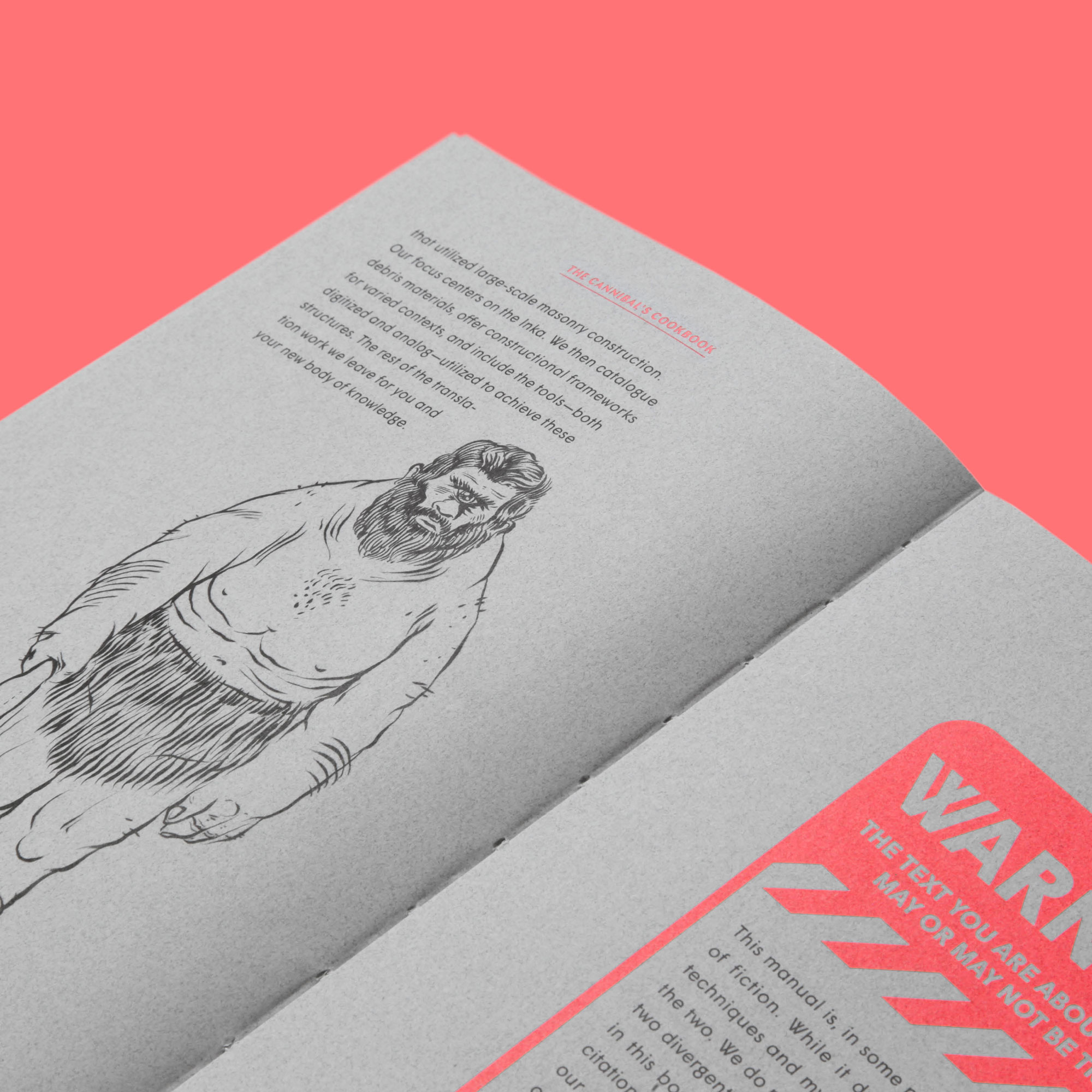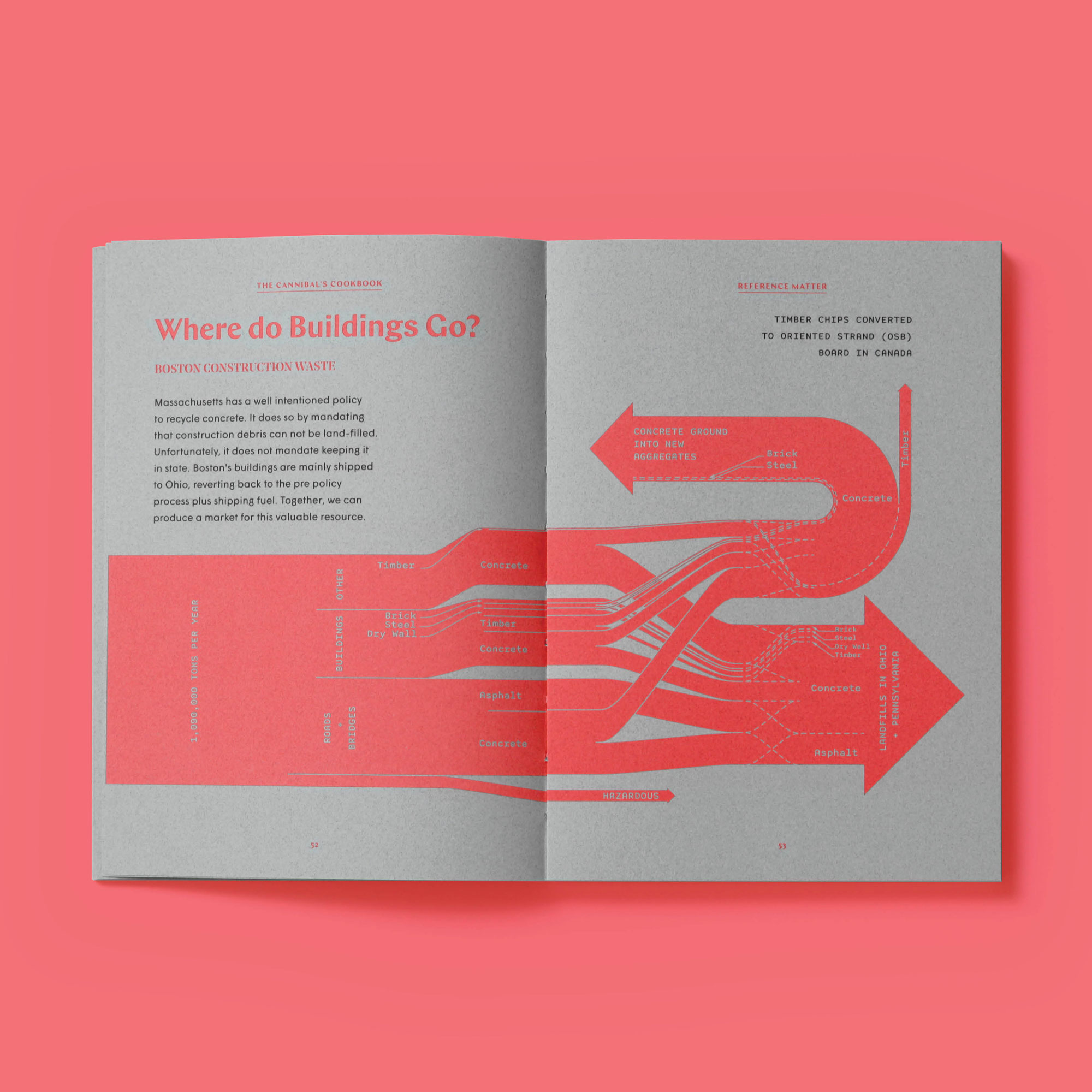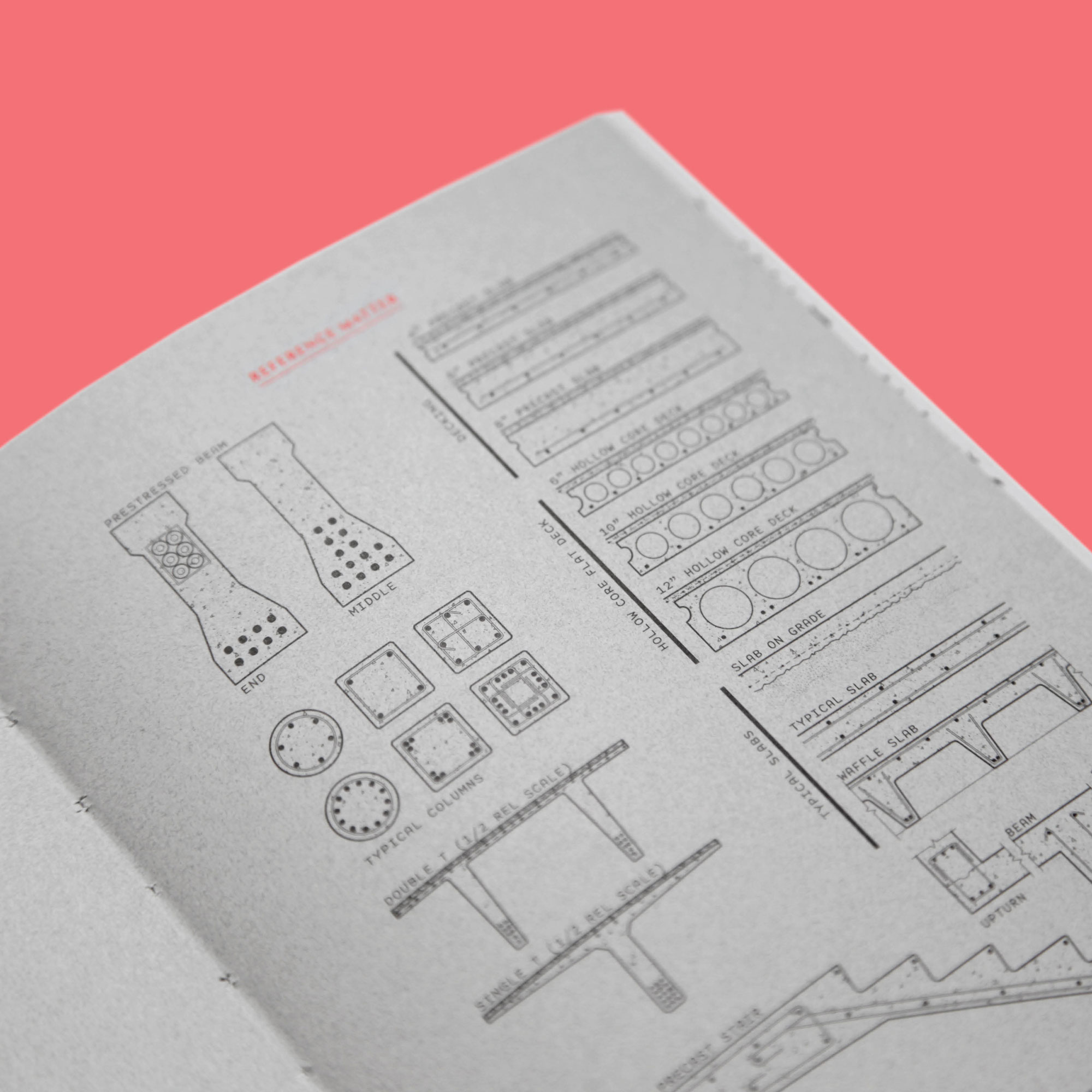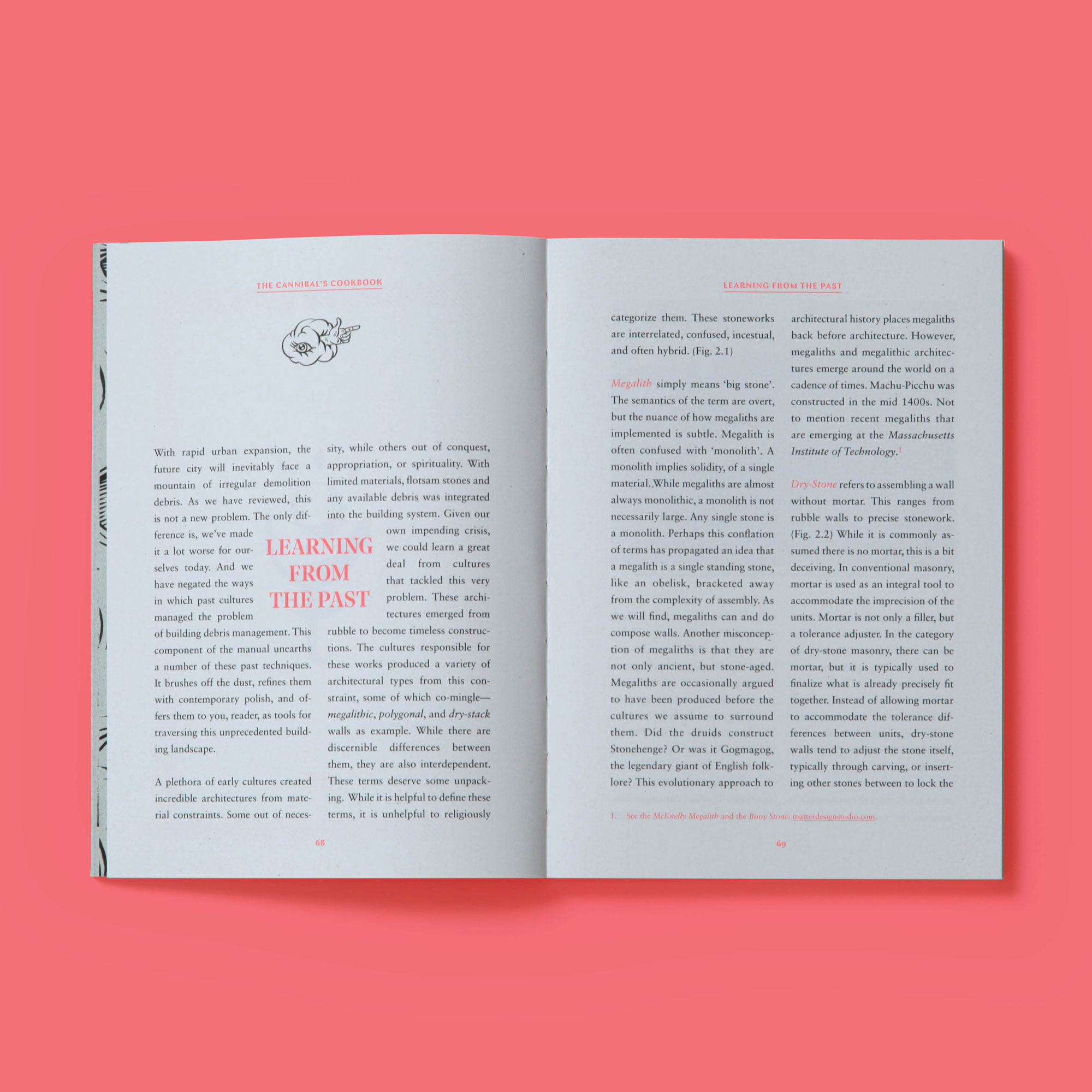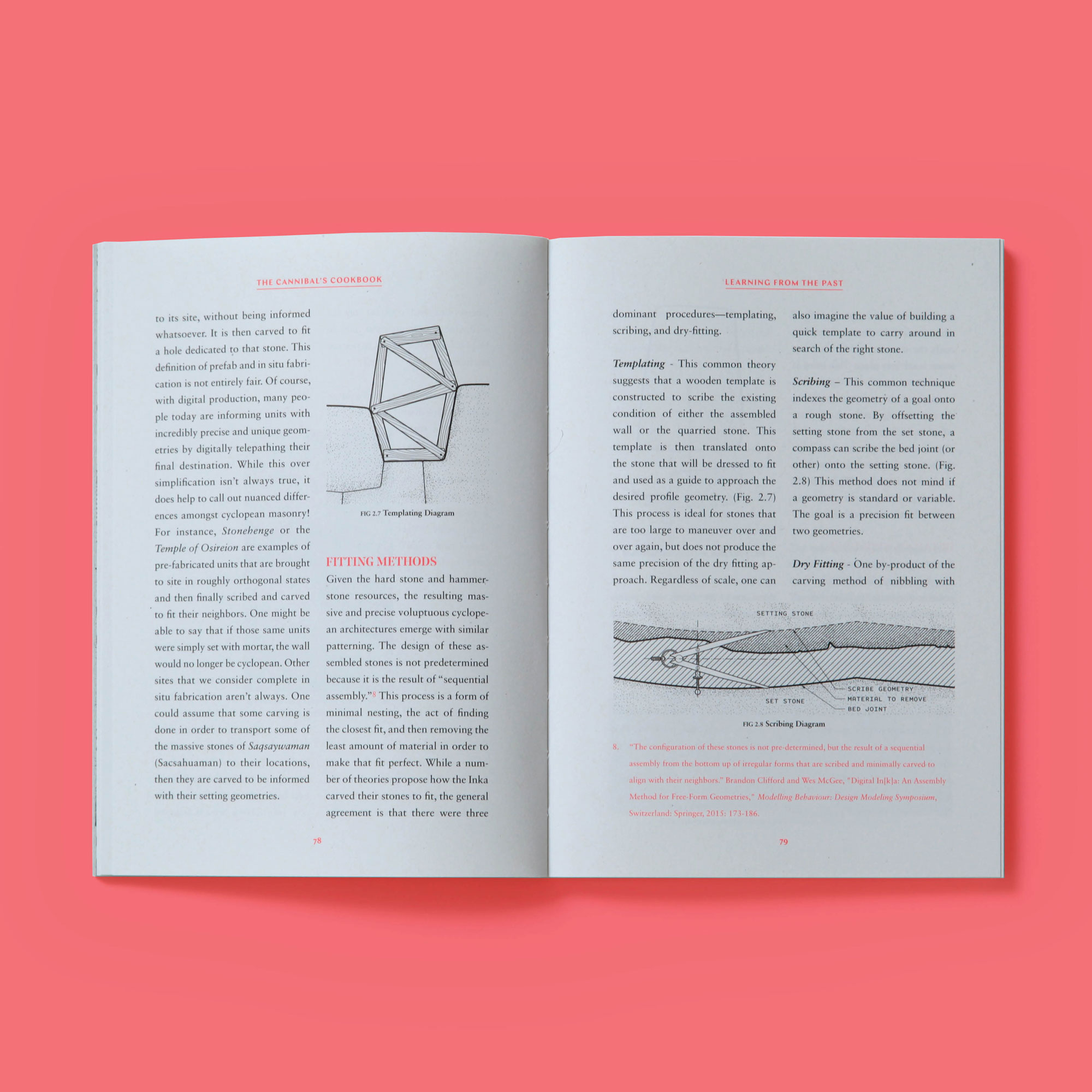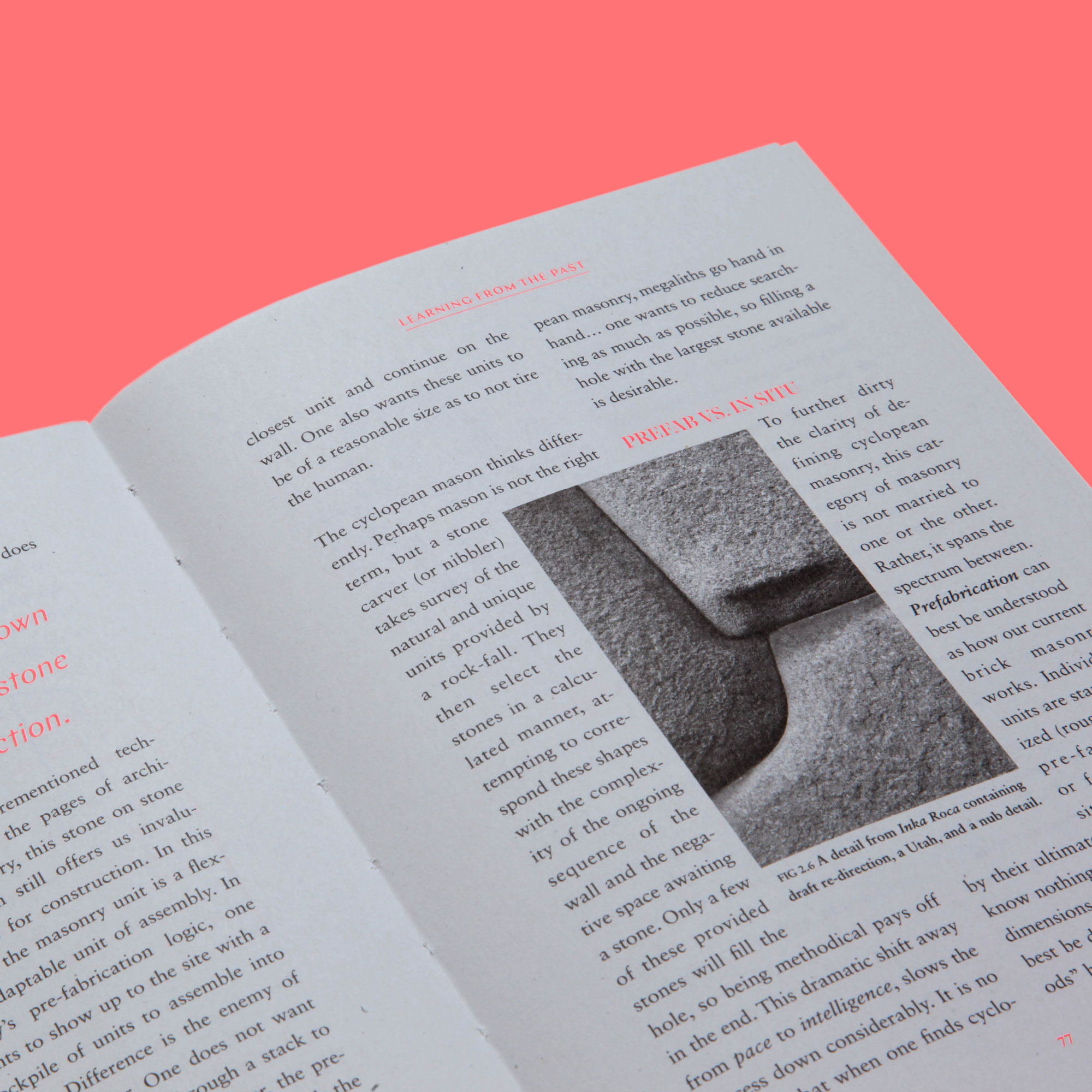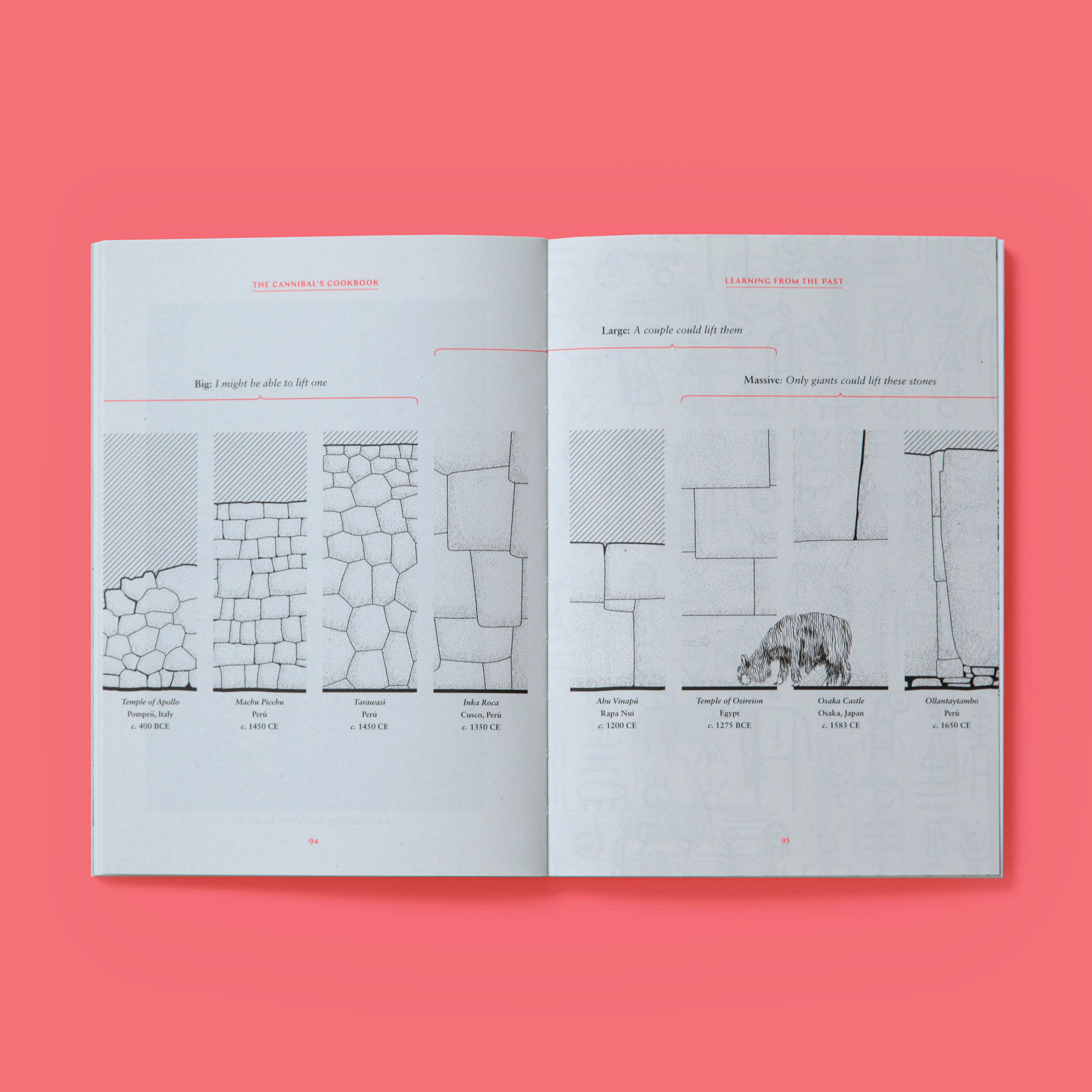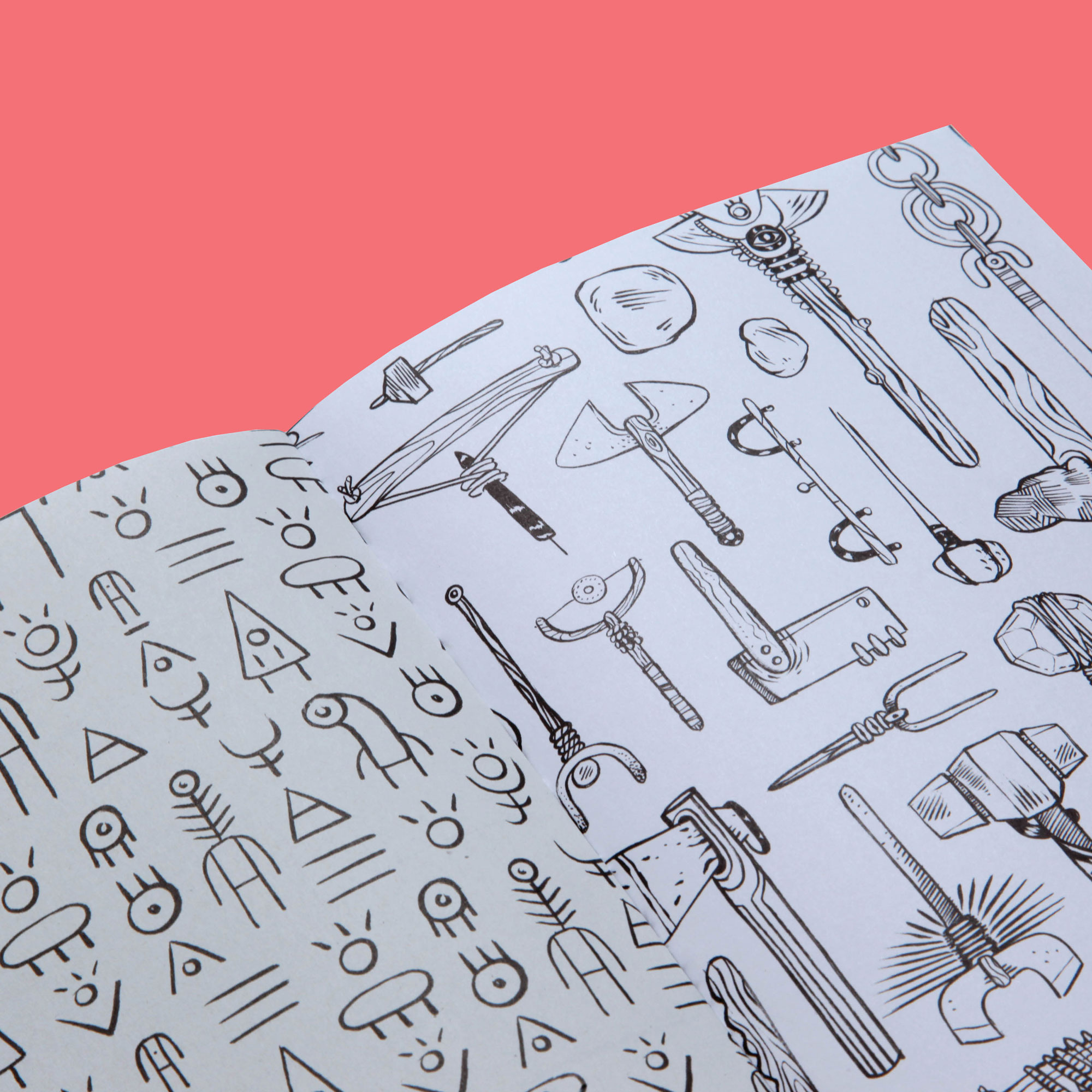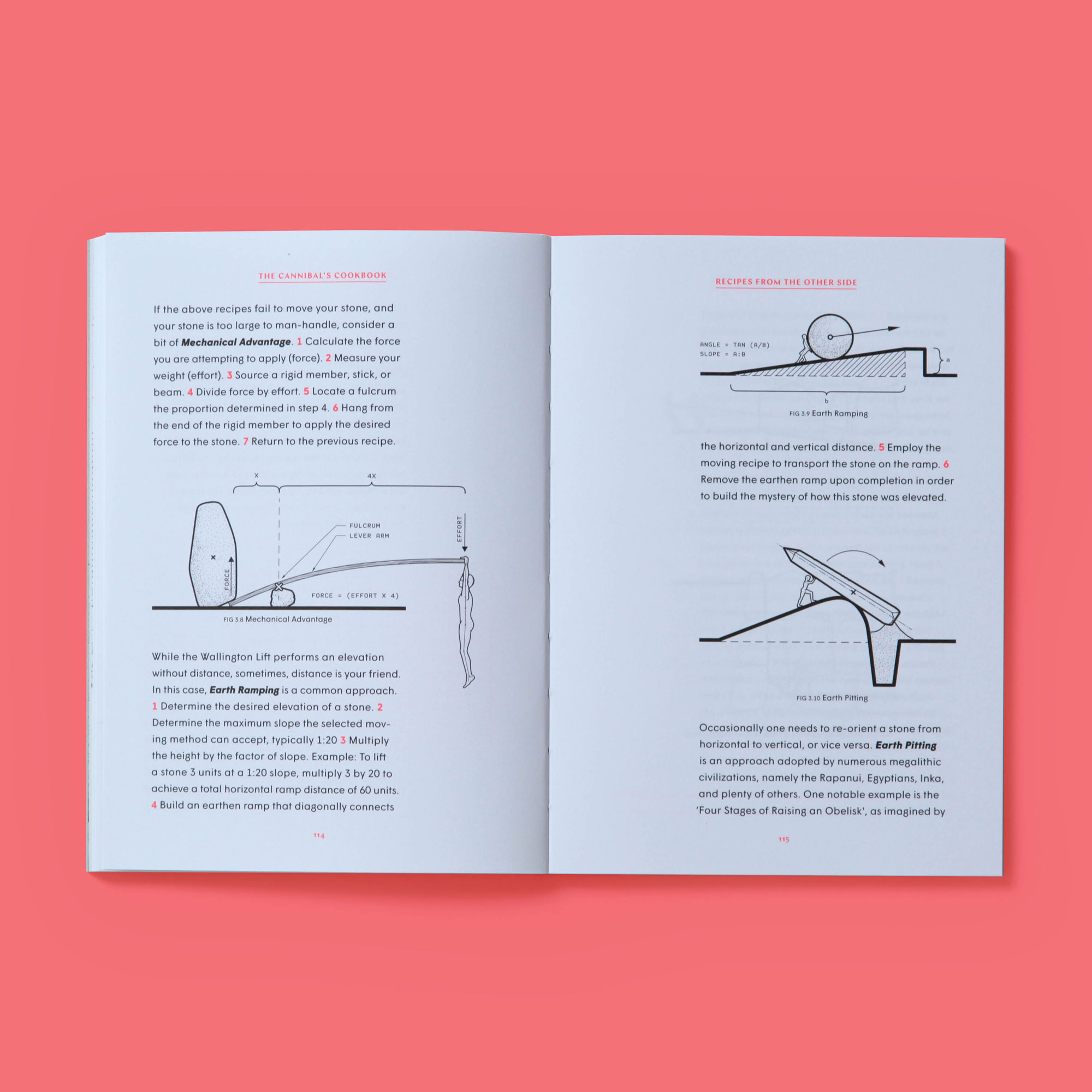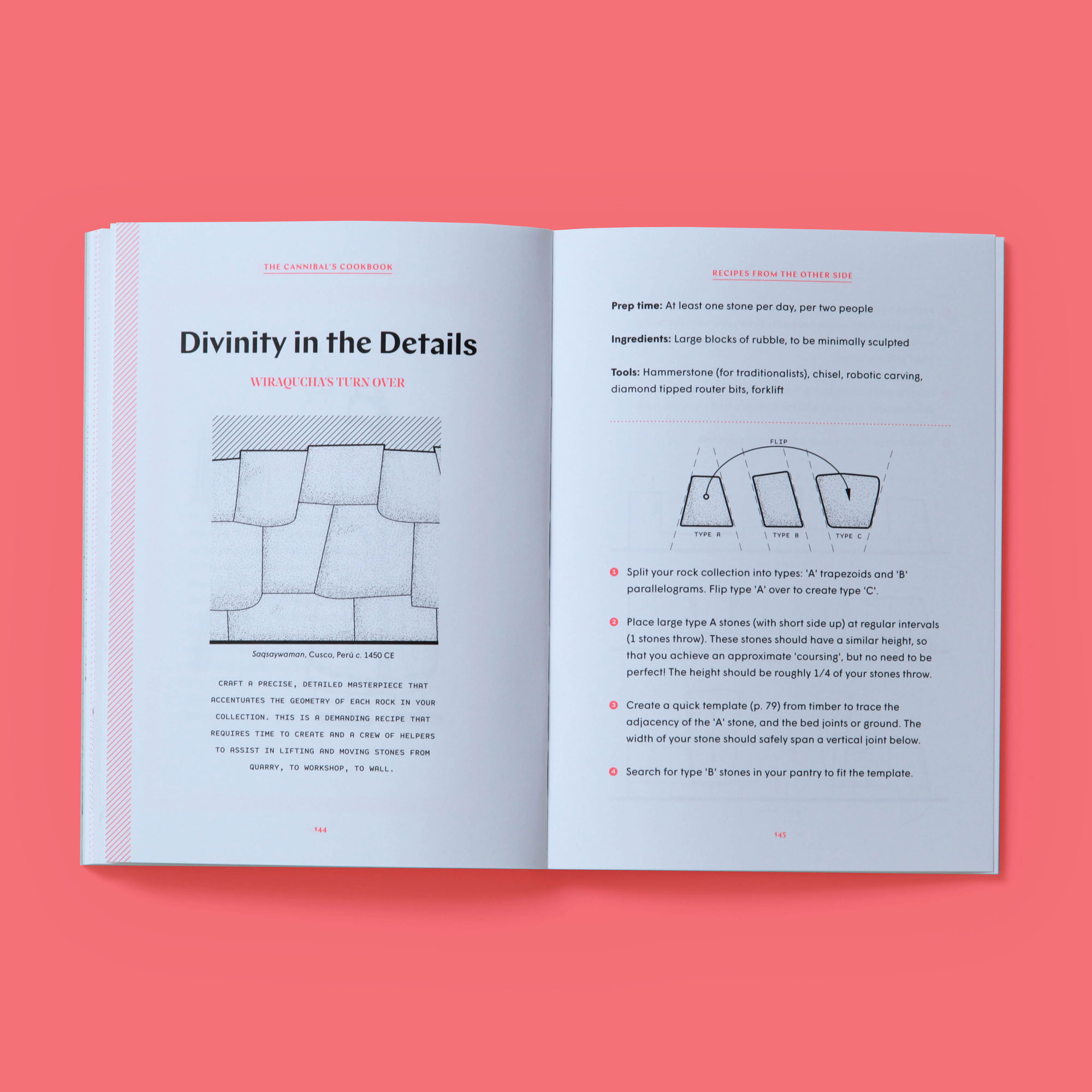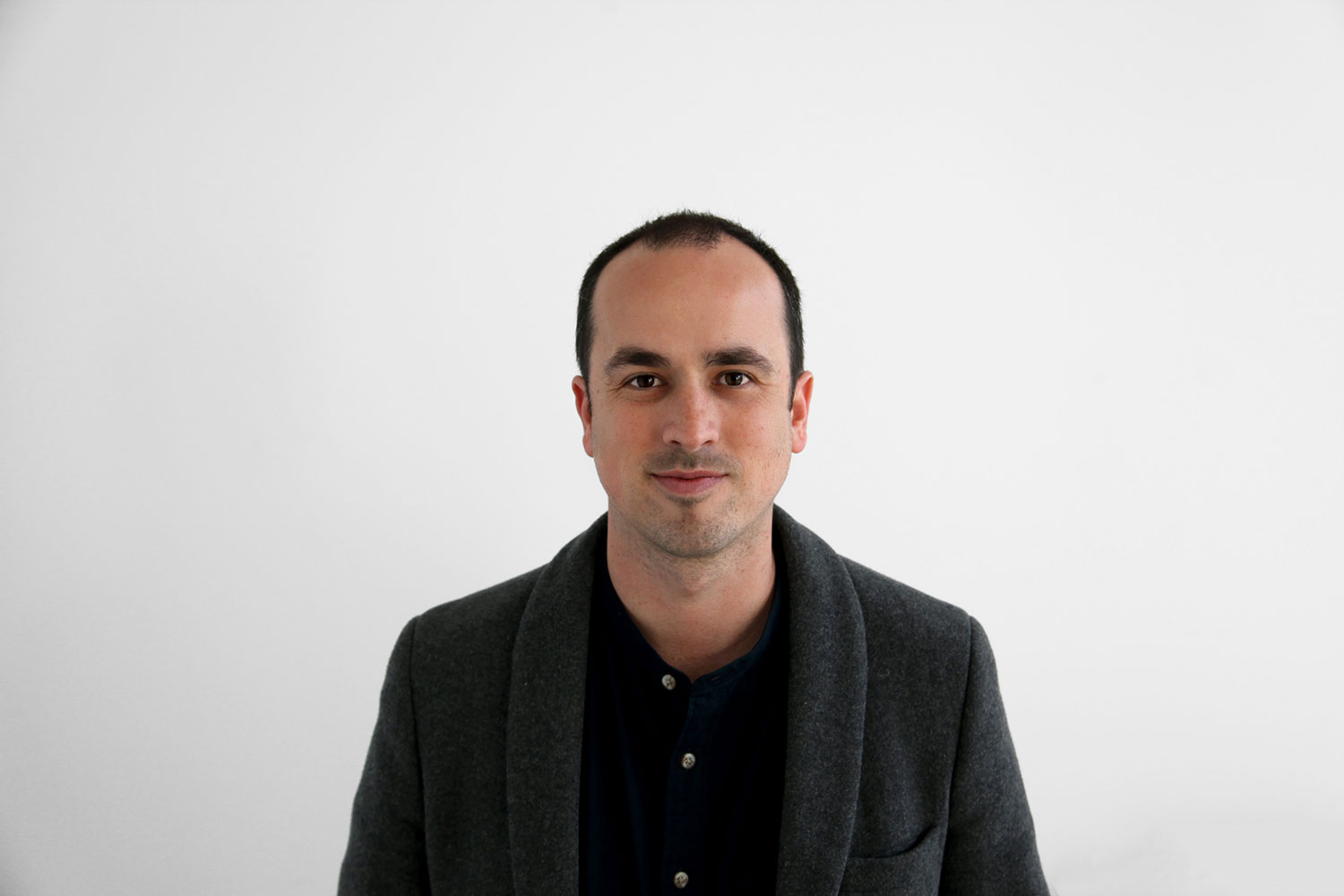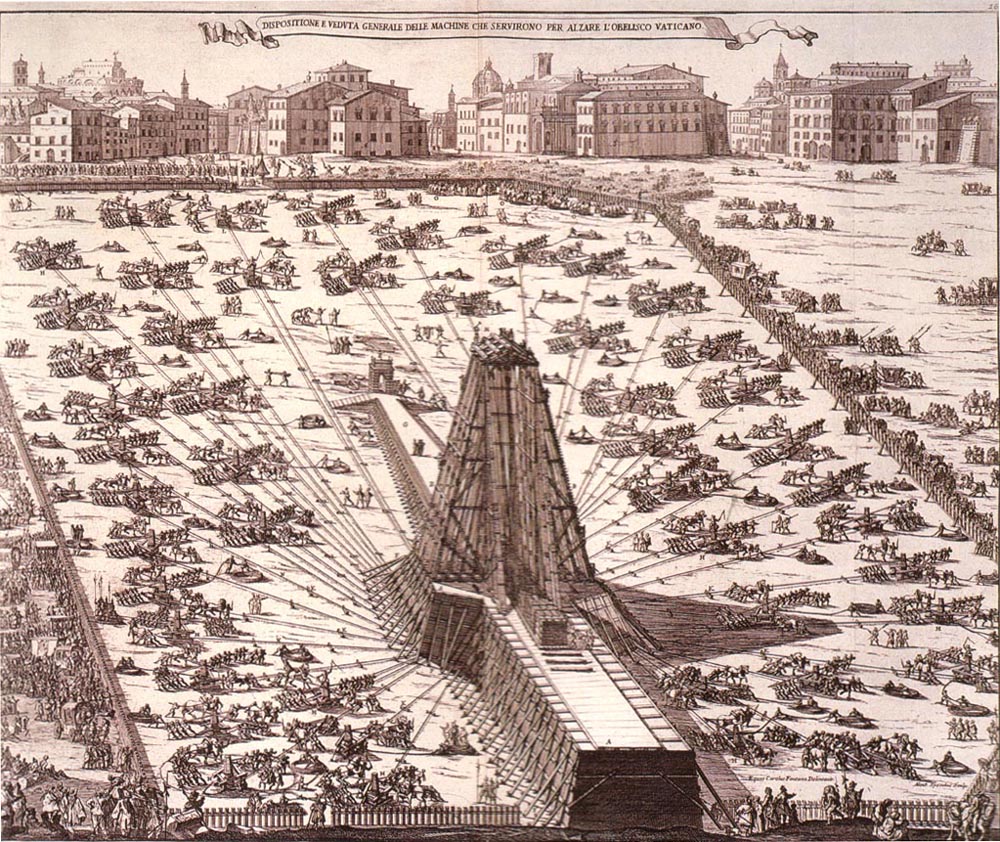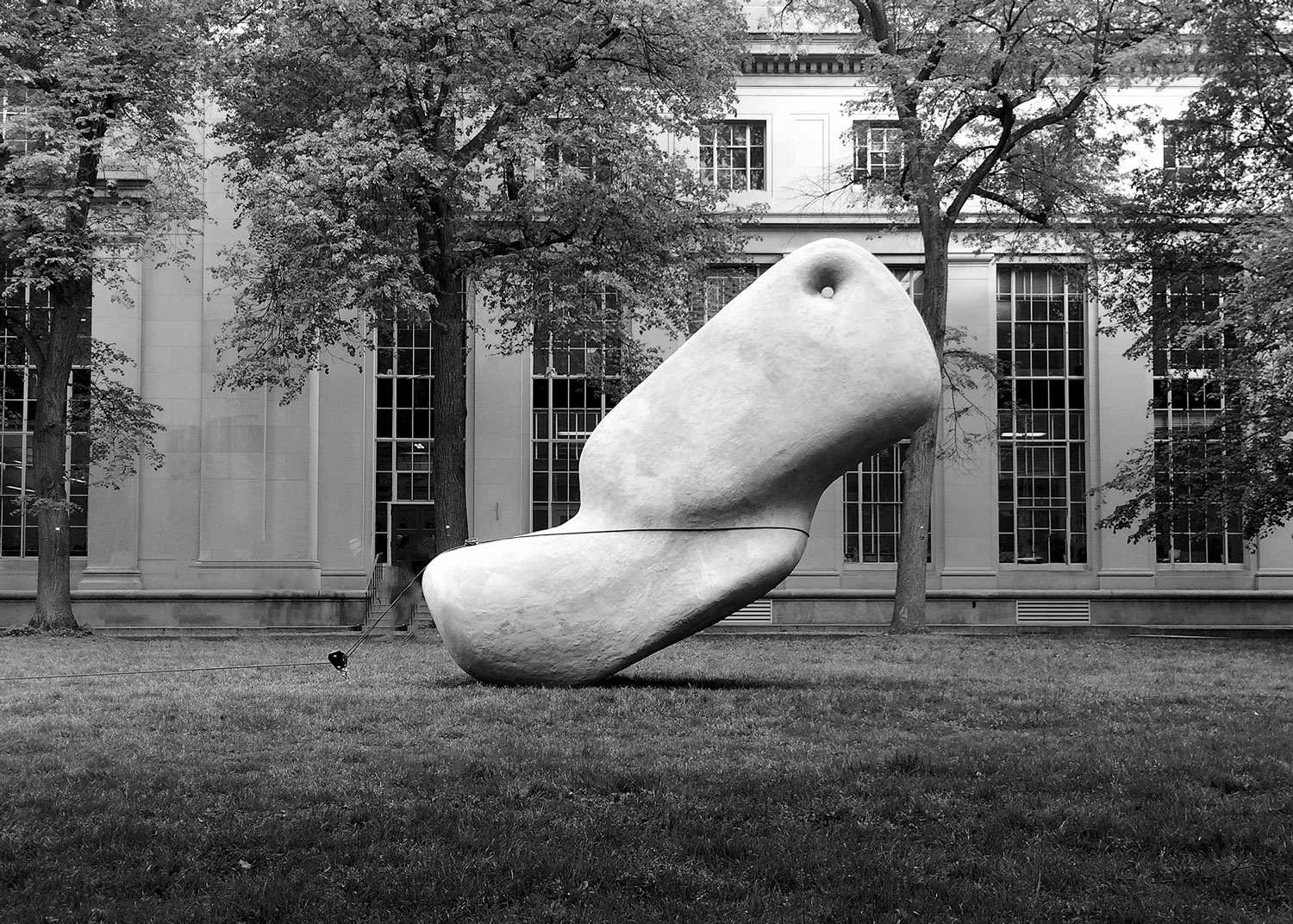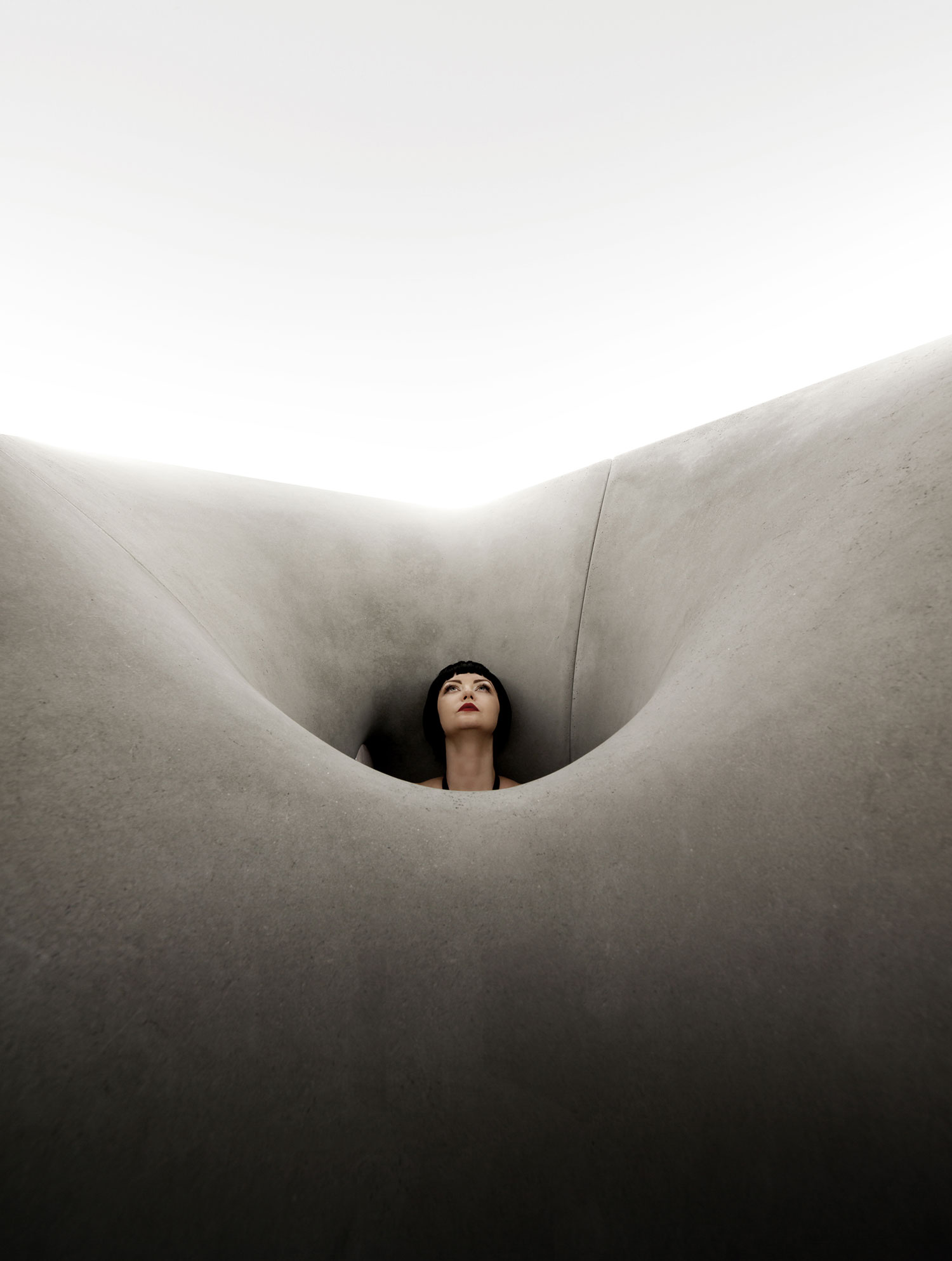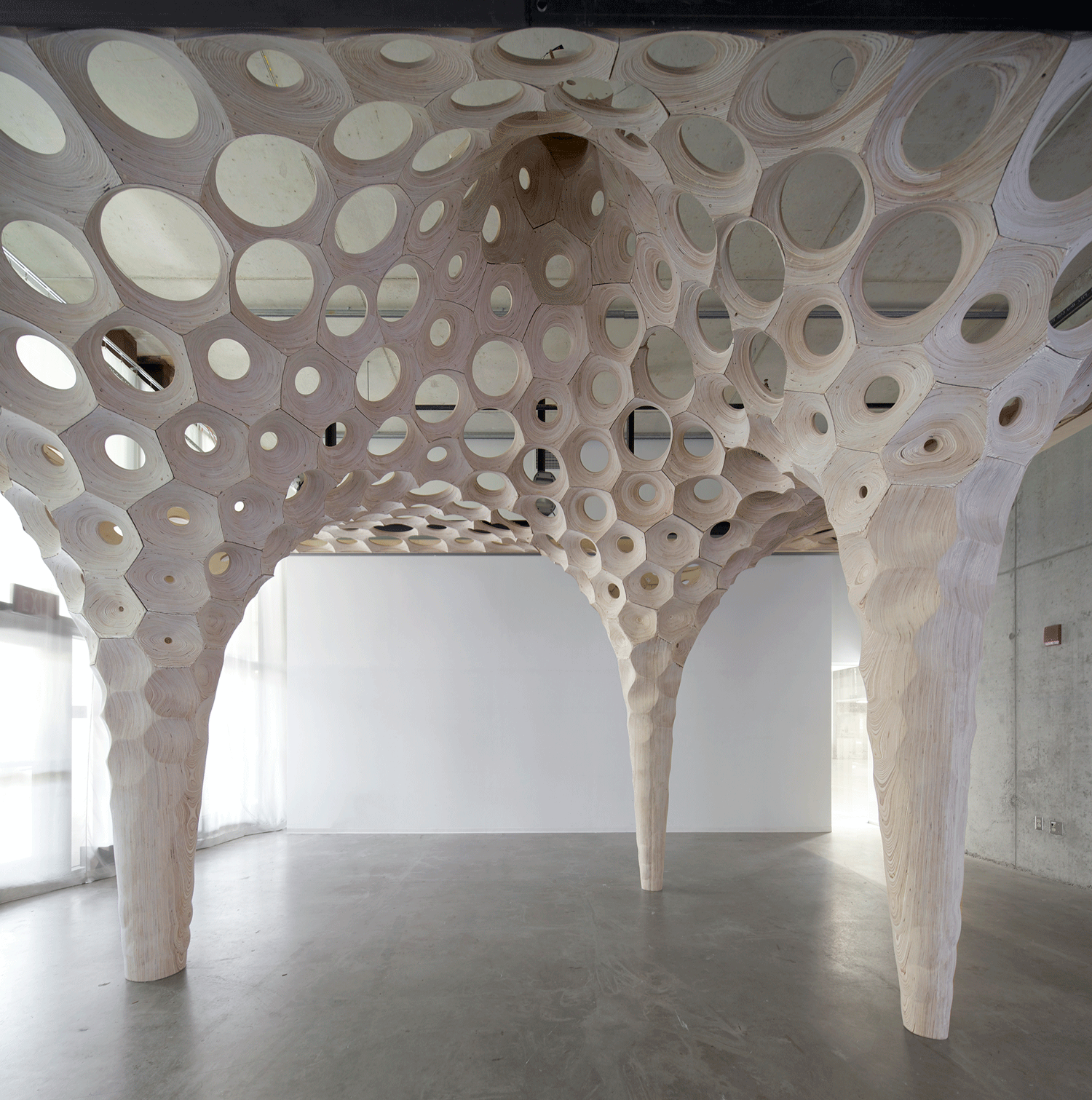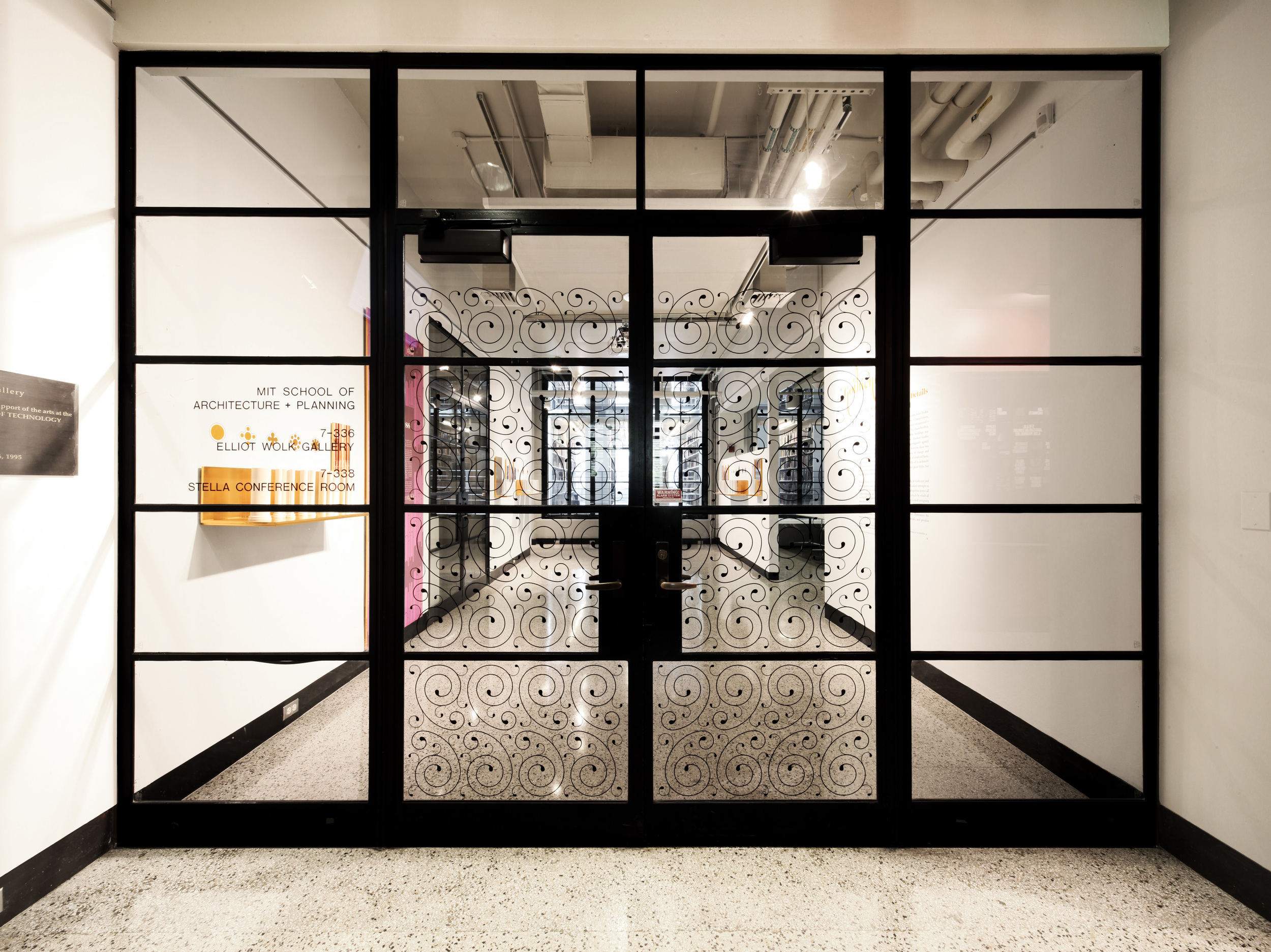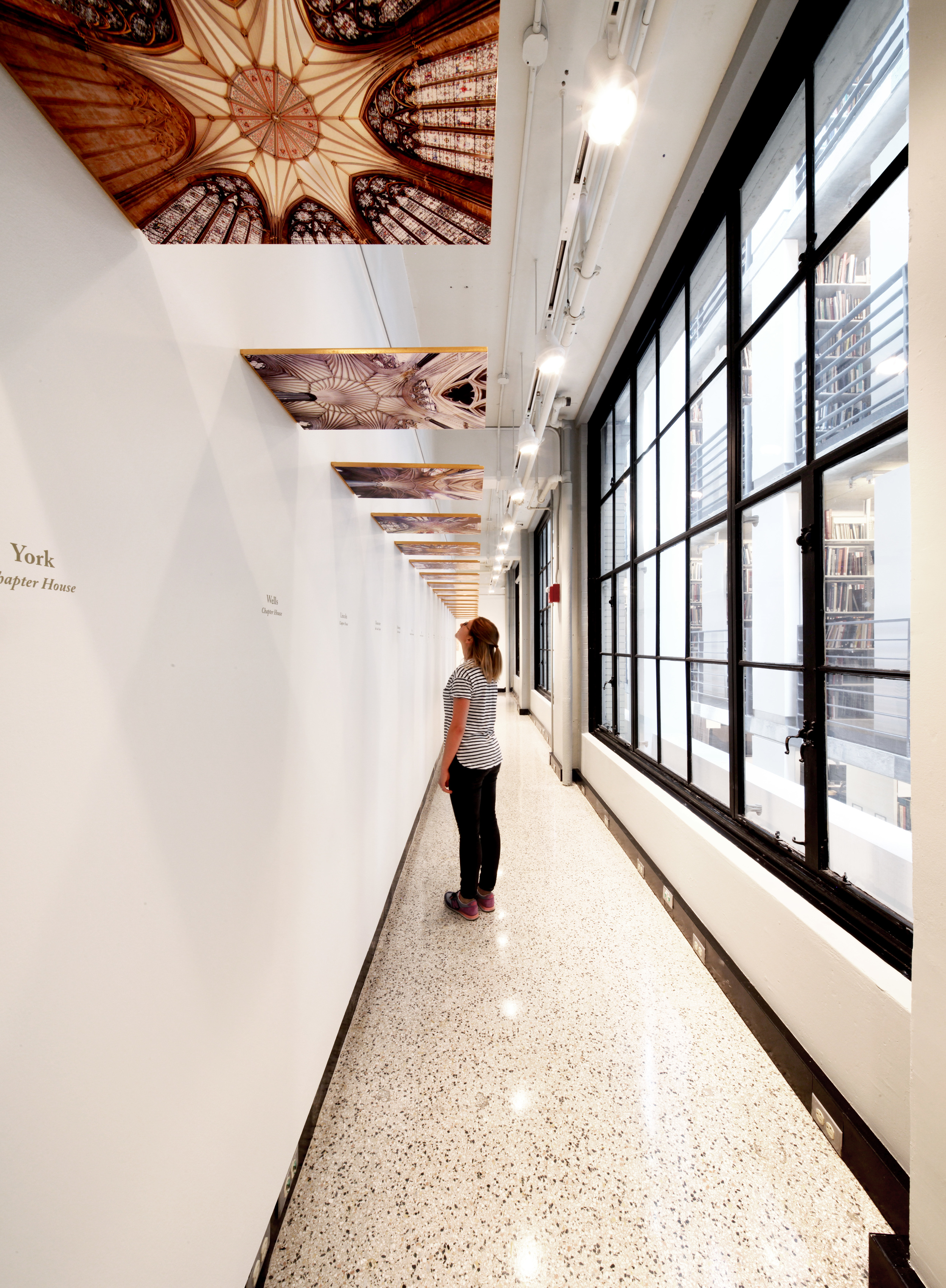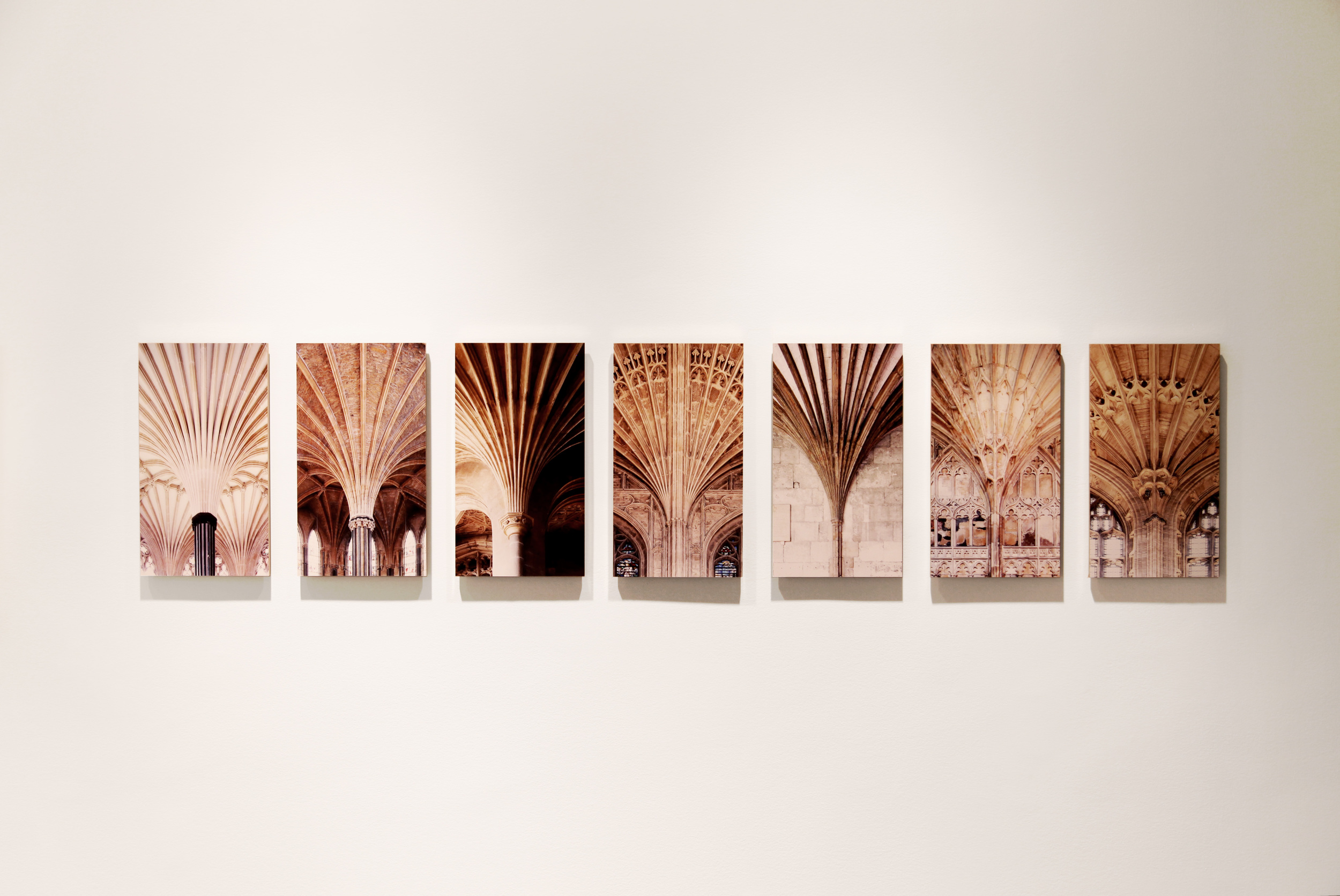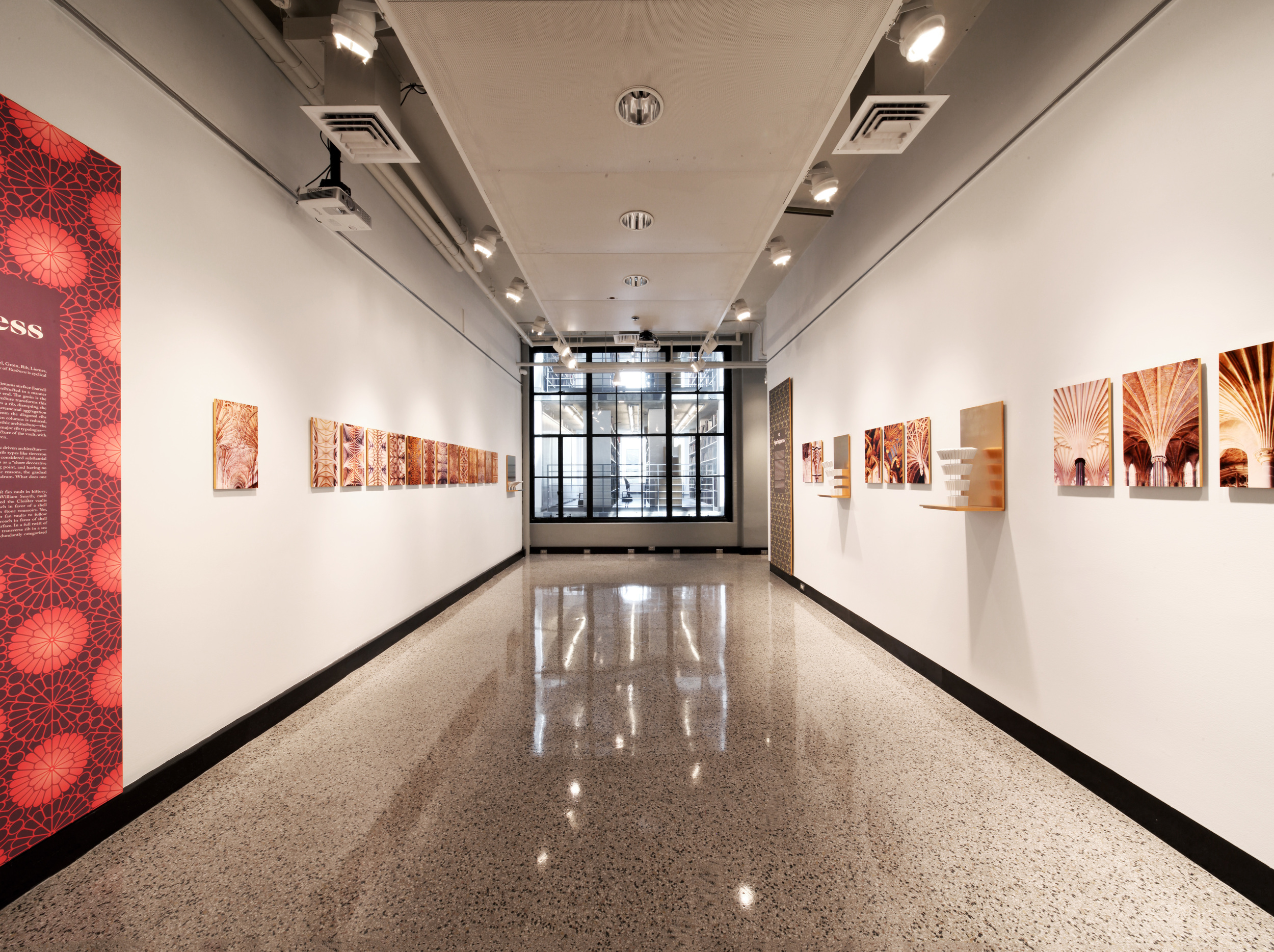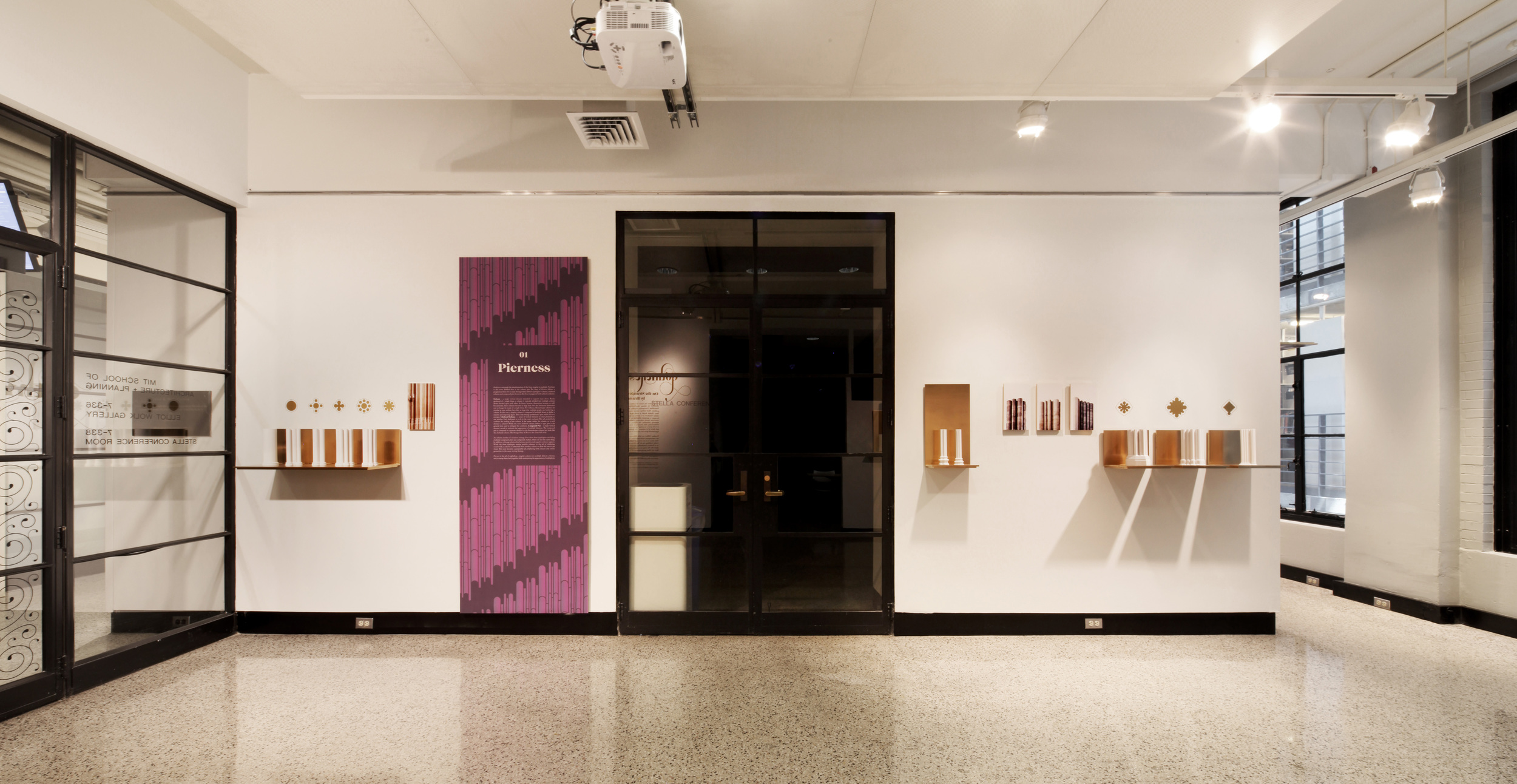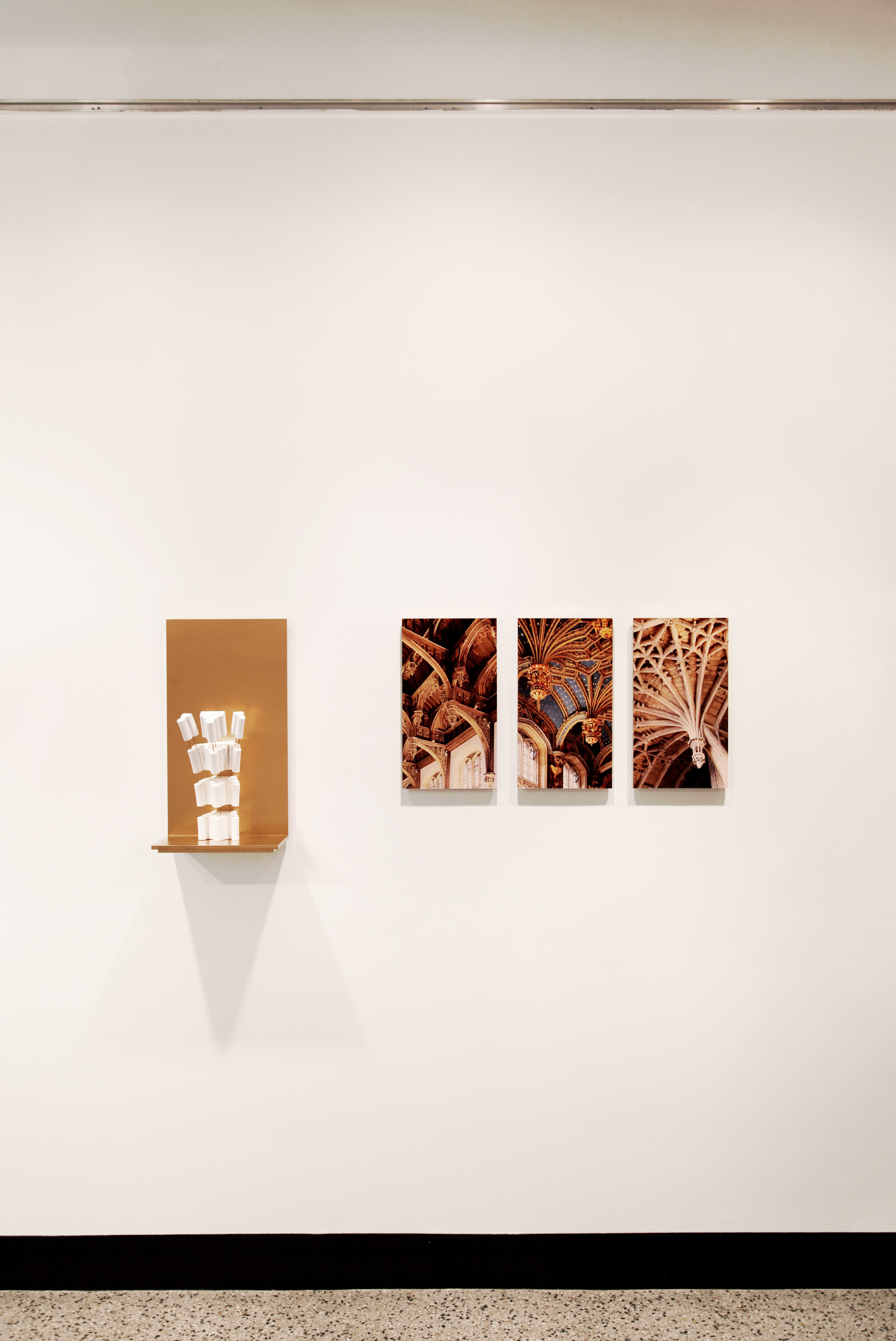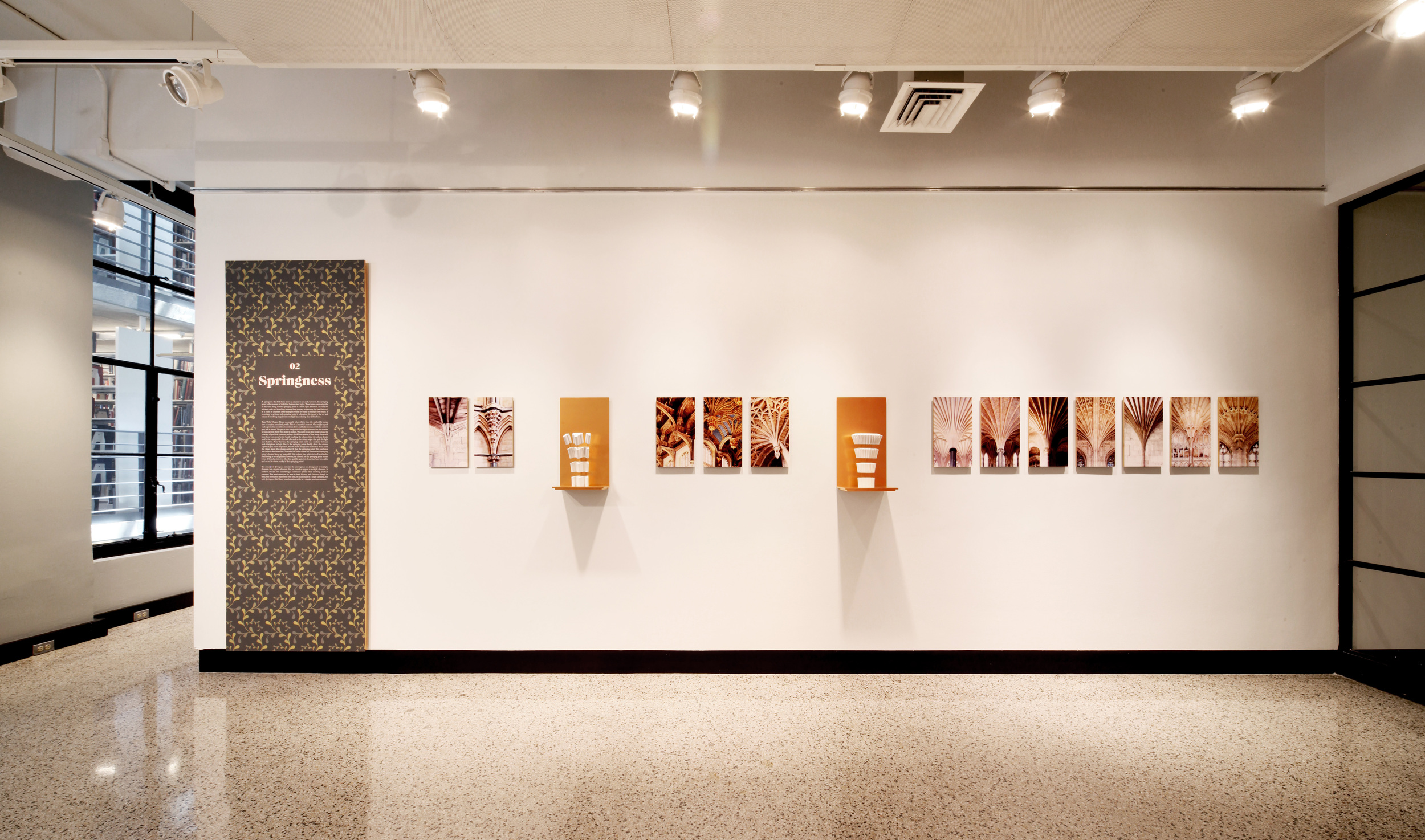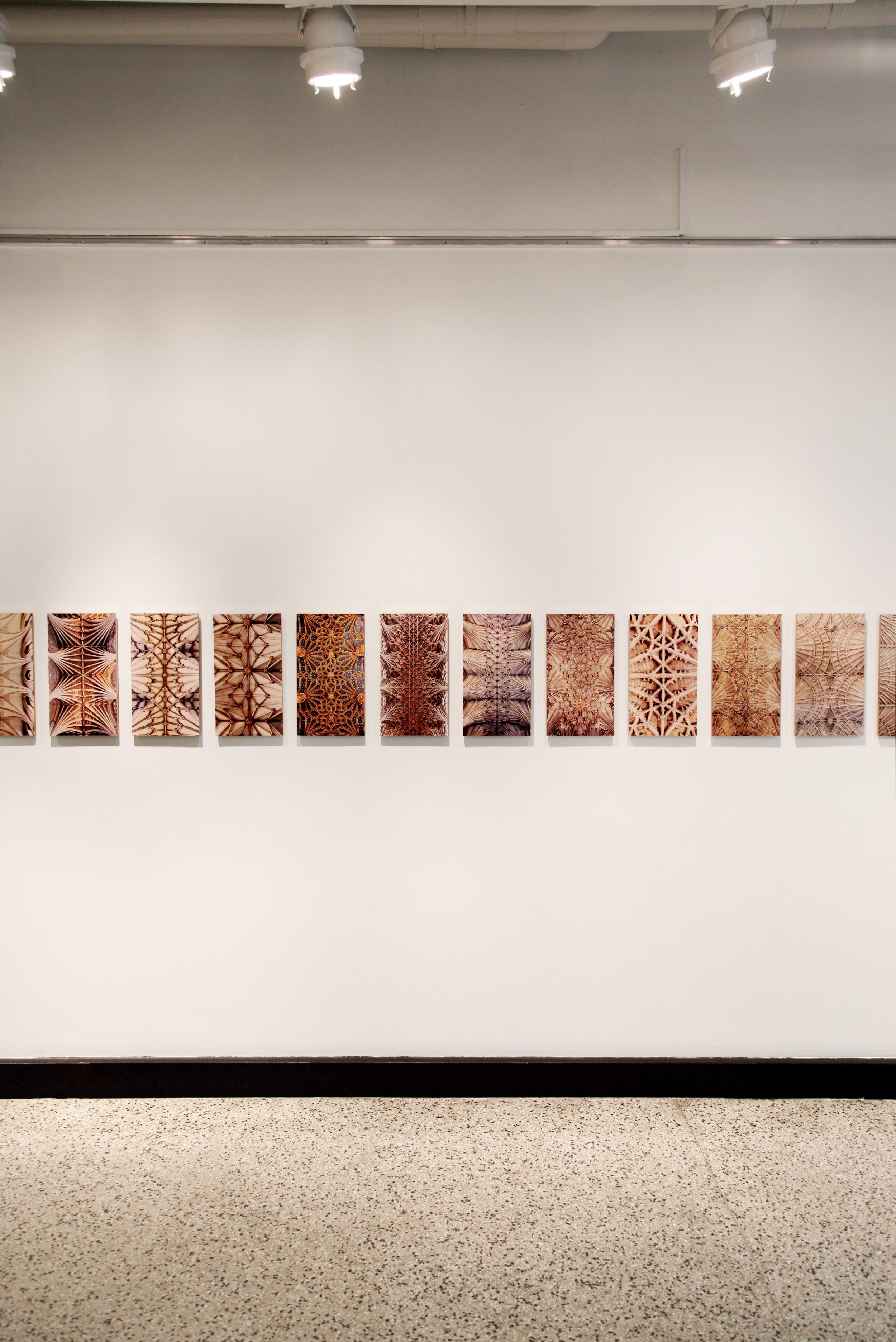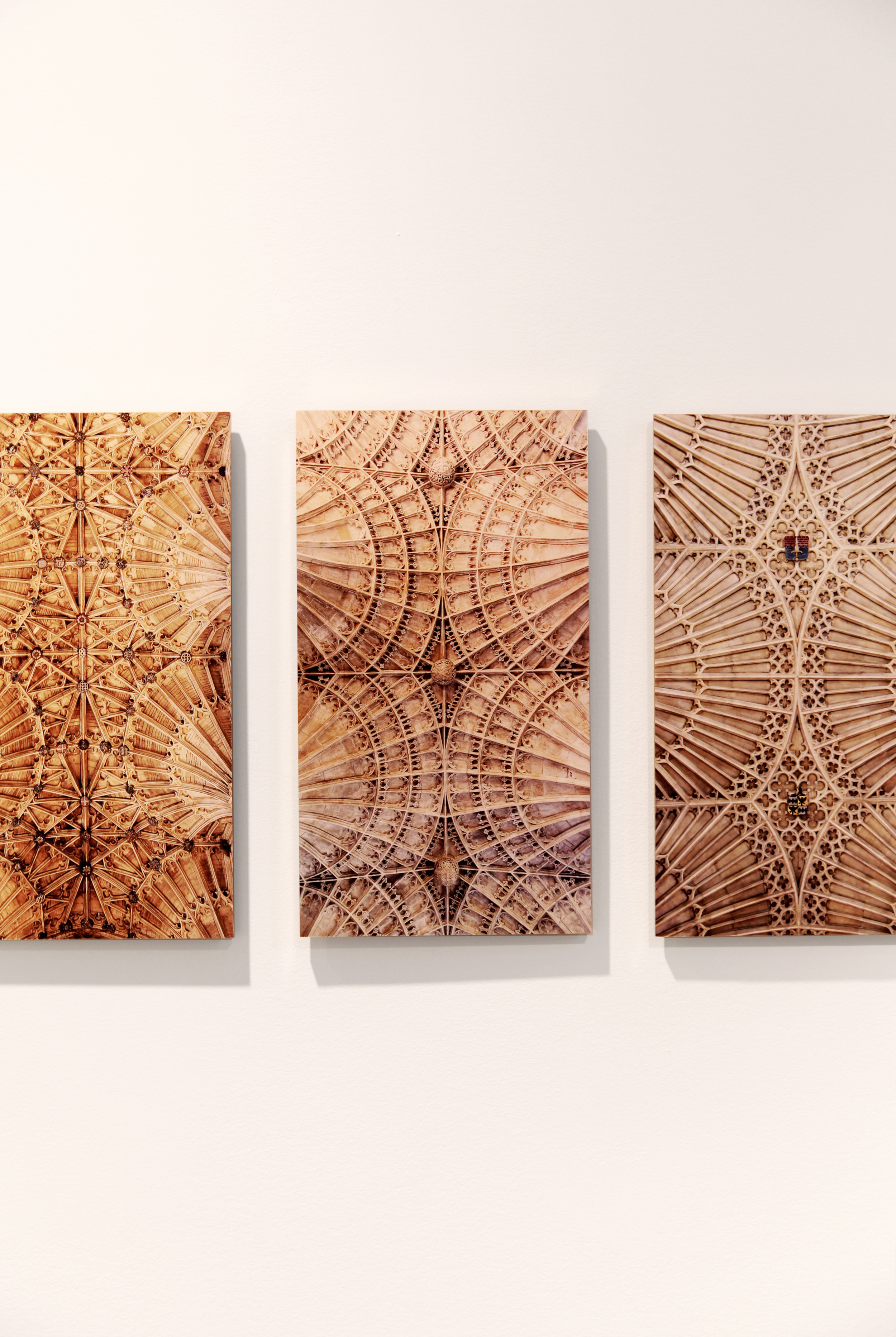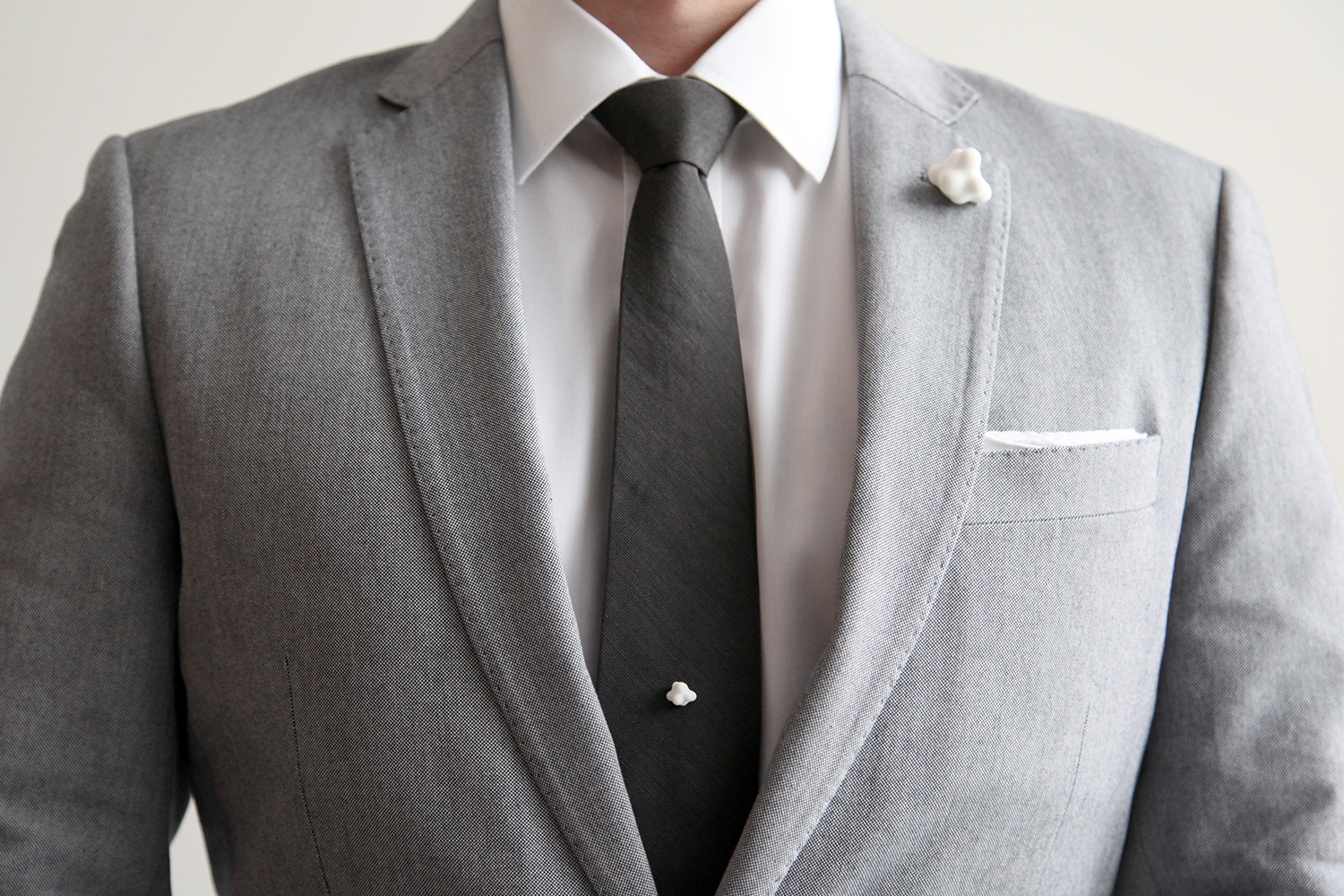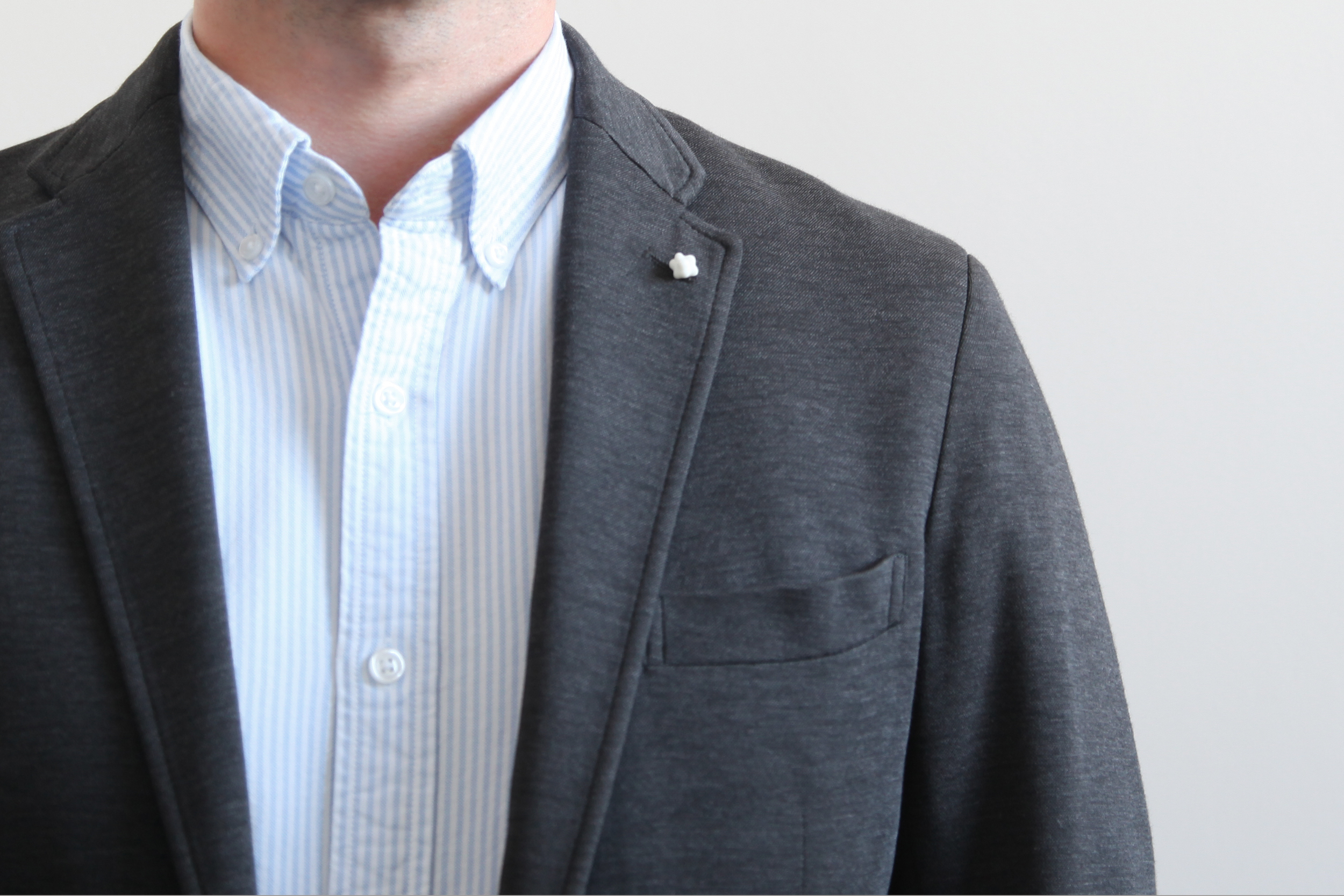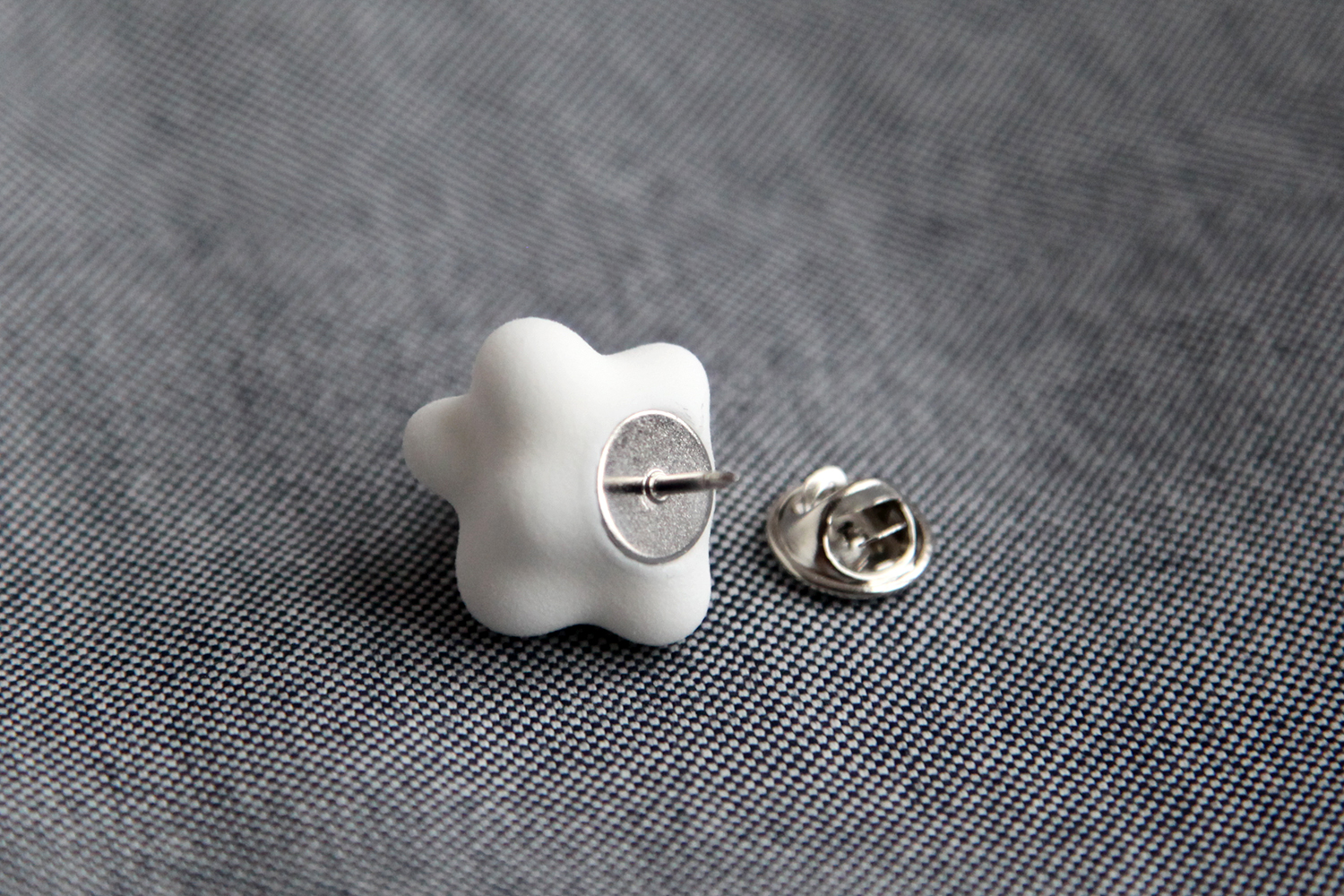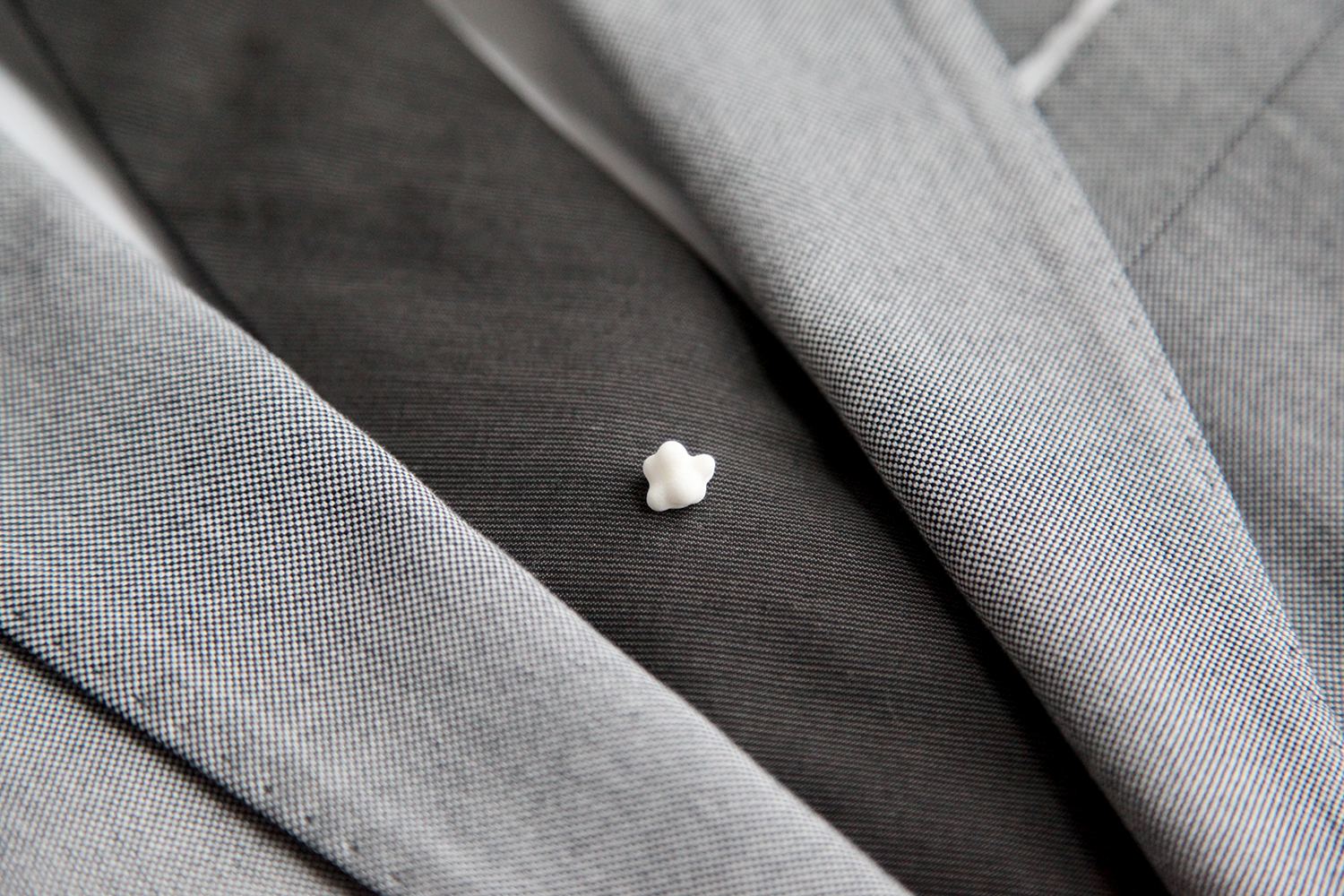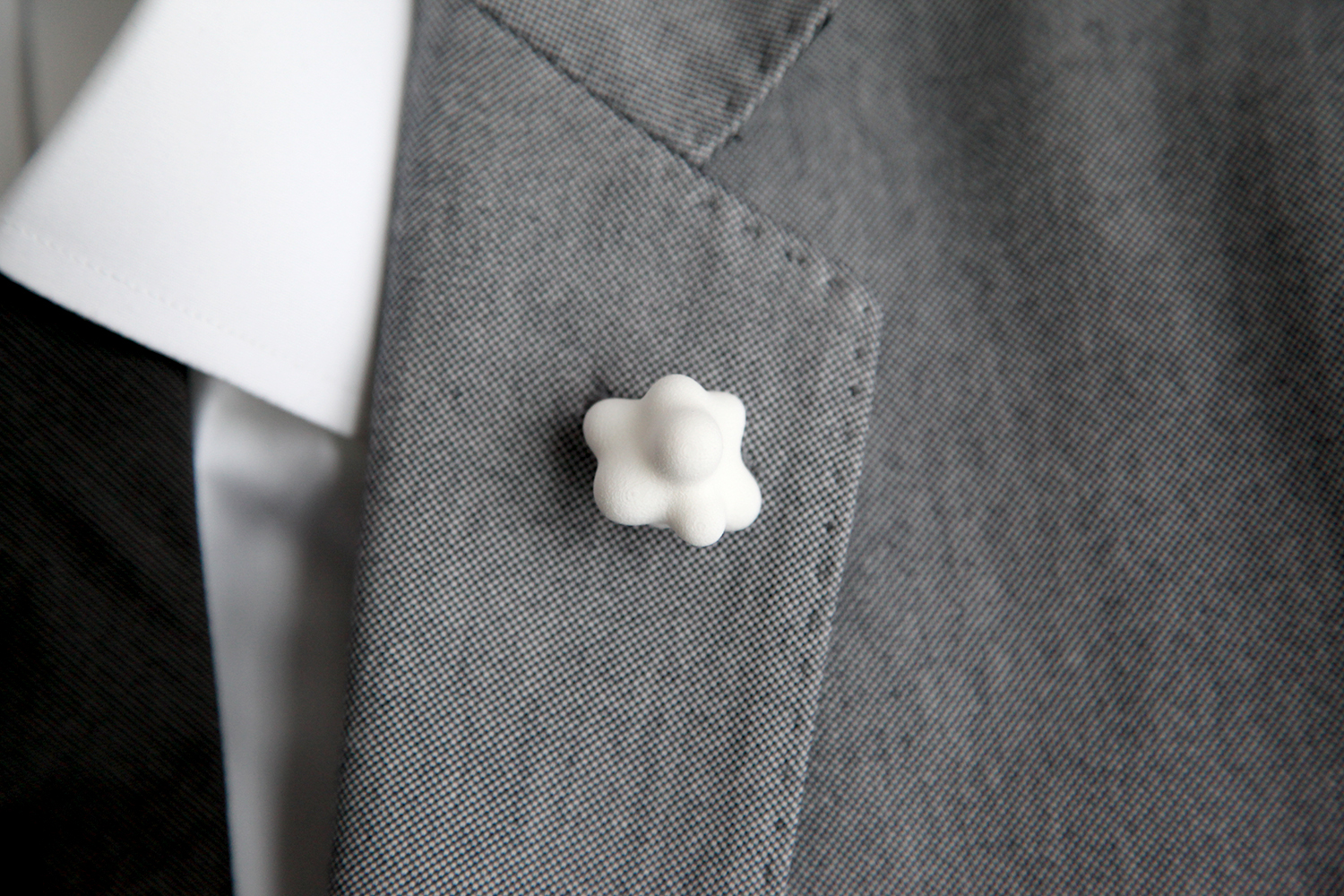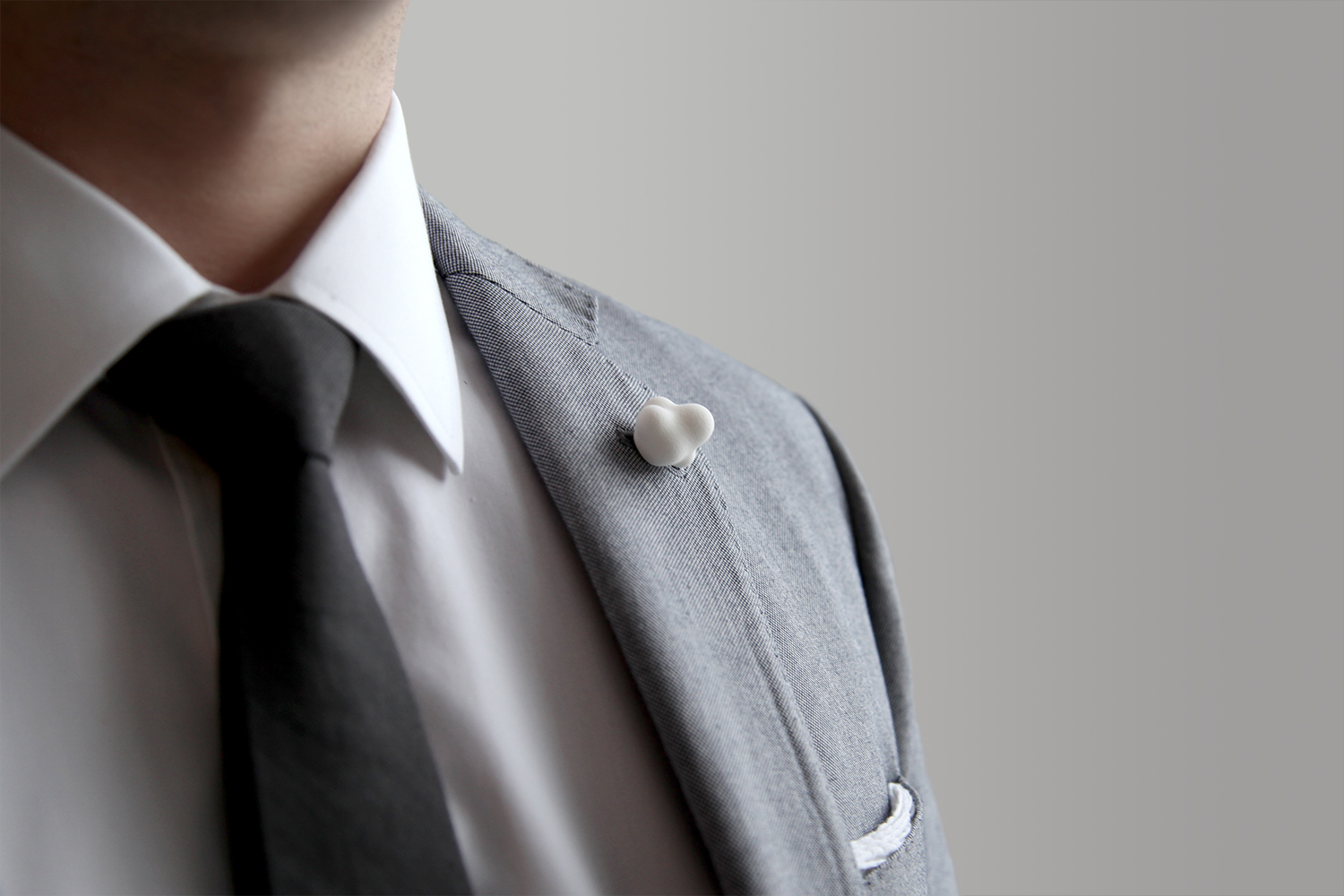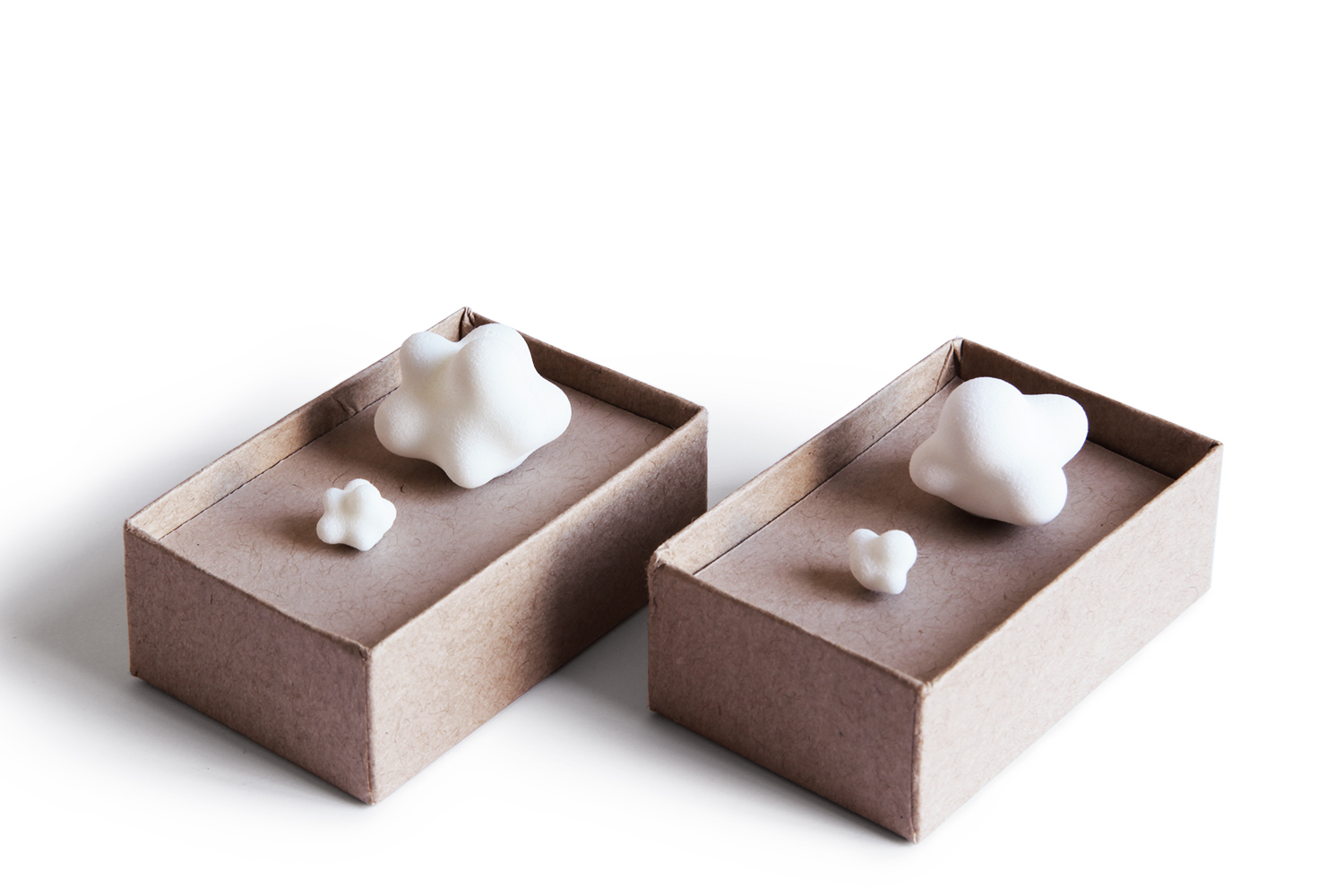The McKnelly Megalith has been spotted heading to the west coast. It will be on exhibit at the CCA's exhibition and symposium titled 'Designing Material Innovation' from September 28 to December 22. The McKnelly Megalith is the product of the Megalithic Robotics studio at MIT. Brandon Clifford co-taught this studio with Mark Jarzombek and Carrie McKnelly.
The Cannibal's Cookbook Preview
Wes McGee Wins ACADIA’s Innovative Research Award of Excellence
Wes McGee wins the 2017 ACADIA (Association for Computer Aided Design in Architecture) Innovative Research Award of Excellence. As an award recipient, McGee will also give a lecture at this year’s ACADIA Conference, “Disciplines & Disruption” which will be hosted by MIT on November 2 - 4, 2017.
McGee was chosen for his work in innovative research and teaching which focuses on developing new connections between design, engineering, materials, and processes as they relate to the built environment through the creation of customized software and fabrication tools.
References from News:
Project Update -Stacked Stones
Ply Shelf PRICE DROP!
We have great news! Our amazing fabricators and friends over at CW Keller just improved the manufacturing capabilities of our Ply Shelves and we are able to drop the price from $650 down to $275! Tell your friends!
Brandon Clifford Awarded Rome Prize in Architecture
Brandon Clifford receives the 2017-18 Founders Rome Prize in Architecture from the American Academy in Rome. His project is titled 'Ghosts of Rome'.
Ghost /gõst/ n. an apparition of the ancient that becomes manifest to the contemporary.
When a red granite obelisk was transported from Egypt and erected in St. Peter's Sq., a massive spectacle surrounded the armature and celebration of its assumed final positioning. Not only is little known of the megalith's origin, little is also known of this spectacular effort. The ghosts of this knowledge intentionally erased in favor of a mystical understanding of power. I am fascinated with erasures of knowledge, for the potentials they offer through contemporary manifestations. Rome is full of ghosts; of which I am most interested in three types—petrification, spectacle, and spatial. This proposal seeks to exercise a series of Roman translations, through conversations with fellow collaborators. Not only is Rome an ideal incubator for mining these pockets of knowledge, but also the social and cross-disciplinary conversations that emerge through the residency are an ideal scenario for such a research method. What kinds of architectures emerge when the ghosts of Rome manifest today?
Five Fields and Microtherme are AZ Awards Finalist
We have two finalist projects in this years AZ Awards! Five Fields Play Structure in the 'Architecture under 1,000sqm' category and Microtherme in the 'Architecture - Temporary Demonstration' category.
You can vote for the 'Peoples Choice Awards' HERE until May 5, 2017.
Matter is Trying Something New -- on Archinect
We have a recent interview with Mackenzie Goldberg on Archinect HERE. This is part of the 'Small Studio Snapshots' series which is a great line-up of interesting practices, like our friends over at MILLIØNS.
Brandon Clifford, Keynote Speaker at Opal Group SpArc 2017
Brandon Clifford will be the keynote speaker at Opal Summits' Opal Group SpArc - SpArc Interiors 2017 symposium in New Orleans this Sunday March 12th at 7pm.
For more information on the symposium visit Opal Group SpArc 2017.
2017 QuarraMatter Fellows Announced
Zain Karsan (left) and Layth Mahdi (right)
Matter Design and Quarra Stone announce this week that Zain Karsan of the Massachusetts Institute of Technology and Layth Mahdi of the University of Michigan have been selected as the 2017 QuarraMatter Fellows.
Layth Mahdi is a degree candidate for Master of Science in Architecture and Design Research with concentration on Digital Technologies. Layth graduated with a Bachelor of Architecture from the American University of Sharjah in the UAE where he also worked at the Fabrication lab where he continued to explore and advance his interest. He was the lead designer and fabricator for the award-winning design-build Tarkeeb Display Wall where he developed a great knowledge in manual and digital fabrication. He is an award-winning Architect and fabricator, his projects won multiple awards some of which are AIA middle east first place design award, and Young Artist Award first place design category. He is currently a fellow student working along with Professor Wes McGee at the Fablab at the University of Michigan where he is helping developing thermoplastic concrete molds and GFRC formulas. As exposure to design research is an integral part of his learning process, Layth is looking forward for this fellowship which he sees as a great and rare opportunity to explore what is known to be a traditional material using a highly advanced multi axis robotic and it will allow him to expand his experience and skills in the fabrication field.
Zain Karsan is currently pursuing a Master of Architecture at MIT. He received his bachelor’s degree in architecture from the University of Waterloo School of Architecture in 2013. Zain has worked on a variety of installations with GLD, WOJR, and the Self Assembly Lab, as well as the construction of a public space in China as part of a design build workshop with students from SEU and the CAA coordinated by Wang Shu. He has also worked for a number of professional practices in Toronto, New York, and Boston. Zain’s interests have revolved around computational processes as they relate to materials, with work spanning from laminar assemblies using thin shell geometries of fiberglass, to the subtractive processes of machining hardwood. His current research focuses on the design of fabrication tools to reconsider the means of our interaction with materials.
For more information and the press release, click here.
2017 Quarra Matter Fellowship - Call for Submissions
Resulting projects from the 2015 & 2016 fellowships.
Quarra Stone and Matter Design announce the third annual Quarra Matter Fellowship. This prestigious fellowship is a research position as part of an ongoing industry/academy collaborative research project between Quarra Stone and Matter Design on advancing digital agendas in the material stone.
Two research fellows will work daily at Quarra Stone’s location in Madison Wisconsin for the duration of a 10-week research project in the summer of 2017. During the course of this fellowship, the researchers will work directly with the Quarra Stone team to develop and implement advanced fabrication processes. This research will culminate in a series of large-scale constructed artifacts carved and assembled of stone. Fellows will work with and alongside the professional stone fabricators at Quarra Stone and are expected to report and communicate the research with their respective research coordinators—Brandon Clifford at MIT and Wes McGee at UM. This collaboration includes Caitlin Mueller in developing computational strategies with regard to the discipline of structure.
Past fellowships include a cairn (see this video) by the 2015 fellows Dustin Brugmann and Luisel Zayas, and a method for carving and casting metal details into a white marble shell structure by the 2016 fellows Inés Ariza and Shan Sutherland that will be published in this years Fabricate Conference.
The intention of this research is to build processes that improve accuracy and reduce the gap between drawing and making. Quarra Stone has vast resources dedicated to complex carving of stone, and Matter Design has an interest in engaging this resource and shoring it with computational intelligence. Both parties share an interest in this symbiotic relationship and the fellows will serve to implement, document, and aid in the publication of this research. Throughout the process, fellows will be exposed to master stone-cutters and learn about the process of cutting stone while simultaneously translating that knowledge into digital craft, thus sharing this knowledge with Quarra Stone. While the research is serious, the people at Quarra Stone are incredible hosts, and plenty of fun is had.
Eligibility:
This fellowship is eligible to current students and recent graduates of MIT and the University of Michigan, as well as previous Quarra Stone interns. Applicants at any level of their education will be considered. If you have any questions about your eligibility, please contact us.
Honorarium Details:
Each fellow will receive a stipend of $10,000. Throughout the 10 week period, 80% of the stipend will be distributed via payroll with the final 20% delivered upon submission of the research documentation. This stipend does not include travel or lodging.
Process to Apply:
Candidates must submit application material VIA E-MAIL AS ONE PDF ATTACHMENT.
Application Deadline: 5:00pm EST on February 05, 2017.
MIT Application Submission: bcliffor@mit.edu (Brandon Clifford, MIT/Matter Design)
UM Application Submission: wesmcgee@umich.edu (Wes McGee, UM/Matter Design)
Application Material: In ONE pdf please include the following
- 100 word biography explaining which program the applicant is enrolled in and at what stage, as well as any notes about prior fabrication, computation, and research experience.
- 250 word statement of interest
- Curriculum vitae or Resume
- 3 images (only) expressing the applicants ability to work with computation and fabrication
- 3 Reference Contacts (not letters)
Applications will be reviewed by the second week of February with follow-up interviews soon after.
Brandon Clifford & Wes McGee | Matter Design
Jim Durham | Quarra Stone
Gothicness: On the Strangeness of Rib Details
In his treatise ‘The Nature of Gothic’, the English writer and theoretician John Ruskin identified six defining characteristics of the Gothic; however, Ruskin encountered a problem. Most buildings contain some, but very few contain all of his characteristics. Thus, Ruskin decided to evade rigid classification by suggesting that buildings may exhibit “Gothicness” to a “greater or less degree.” With the suffix ‘ness’, Ruskin’s Gothic becomes a movement embedded in a social agenda. It serves as protagonist against classicism; thereby eradicating a milieu of styles in favor of degrees between these two opposing movements. For Ruskin, Gothic is dedicated to the love of change and workmanship, while classicism is dedicated to the direct reproduction of idealized form; or as he posits, “an architecture invented, as it seems, to make plagiarists of its architects and slaves of its workmen.” For Ruskin, Gothic and Classicism are not passé styles, but oppositional agents that manifest in movements throughout history.
Brandon Clifford sees little difference between Ruskin’s social agenda of Gothicness and our contemporary social experiment—the digital revolution. Despite Ruskin’s attempts to claim there is no one version of Gothic, there is one element that is ubiquitous across all Gothic buildings: the rib. The rib is a critical element because it is the vehicle by which all six of Ruskin’s characteristics manifest into degrees of Gothicness. What is most intriguing about the rib is that it is simultaneously a practical tool as well as a rhetorical device. There are three peculiar moments of transition from functional to rhetorical ribs that hold resonance today ~ Pierness, Springness, and Vaultness. The exhibition illuminates the strangeness of Gothic rib details, examining the possibilities, potentials, and peculiar moments that parallel contemporary digital practice.
Gothicness is on exhibit at the MIT Wolk Gallery from April 20 - August 19, 2016.
Graphic Design by Johanna Lobdell.
Coming Soon - The Buoy Stone
2016 QuarraMatter Fellows Announced
Matter Design and Quarra Stone have announced this week that Inés Ariza of the Massachusetts Institute of Technology and Shan Sutherland of the University of Michigan have been selected as the 2016 QuarraMatter Fellows.
For more information and the press release, click here.
2016 Quarra Matter Fellowship - Call for Submissions
Quarra Stone and Matter Design announce the second annual Quarra Matter Fellowship. This prestigious fellowship is a research position as part of an ongoing industry/academy collaborative research project between Quarra Stone and Matter Design on advancing digital agendas in the material stone.
Two research fellows will work daily at Quarra Stone’s location in Madison Wisconsin for the duration of a 10 week research project in the summer of 2016. During the course of this fellowship, the researchers will work directly with the Quarra Stone team to develop and implement advanced fabrication processes. This research will culminate in a series of large-scale constructed artifacts carved and assembled of stone. Fellows will work with and alongside the professional stone fabricators at Quarra Stone and are expected to report and communicate the research with their respective research coordinators—Brandon Clifford at MIT and Wes McGee at UM. For an example of the research conducted by the 2015 QuarraMatter Fellows, Dustin Brugmann and Luisel Zayas, see this video.
The intention of this research is to build processes that improve accuracy and reduce the gap between drawing and making. Quarra Stone has vast resources dedicated to complex carving of stone, and Matter Design has an interest in engaging this resource and shoring it with computational intelligence. Both parties share an interest in this symbiotic relationship and the fellows will serve to implement, document, and aid in the publication of this research. Throughout the process, fellows will be exposed to master stone-cutters and learn about the process of cutting stone while simultaneously translating that knowledge into digital craft, thus sharing this knowledge with Quarra Stone. While the research is serious, the people at Quarra Stone are incredible hosts, and plenty of fun is had.
Eligibility:
This fellowship is eligible to current students and recent graduates of MIT and the University of Michigan at any level of their education. While a preference will be given to graduate students in the architecture programs, other applicants will be considered.
Honorarium Details:
Each fellow will receive a stipend of $10,000. Throughout the 10 week period, 80% of the stipend will be distributed via payroll with the final 20% delivered upon submission of the research documentation. This stipend does not include travel or lodging.
Process to Apply:
Candidates must submit application material VIA E-MAIL AS ONE PDF ATTACHMENT.
Application Deadline: 5:00pm EST on February 05, 2016.
MIT Application Submission: bcliffor@mit.edu (Brandon Clifford, MIT/Matter Design)
UM Application Submission: wesmcgee@umich.edu (Wes McGee, UM/Matter Design)
Application Material: In ONE pdf please include the following
- 100 word biography explaining which program the applicant is enrolled in and at what stage, as well as any notes about prior fabrication, computation, and research experience.
- 250 word statement of interest
- Curriculum vitae or Resume
- 3 images (only) expressing the applicants ability to work with computation and fabrication
- 3 Reference Contacts (not letters)
Applications will be reviewed by the second week of February with follow-up interviews soon after.
Brandon Clifford & Wes McGee | Matter Design
Jim Durham | Quarra Stone
Sneak Peak - Stone | Glass | Brass
Introducing Cumulus Pin Box Sets
Cyber Monday Deal! Cumulus Pins Box Sets on sale for $15.00. Click here to order yours.
These unisex pins are designed to strike curiosity with a bold and/or subtle statement. The two sizes are proportioned to work well as lapel pins, tie tacks, broaches, as well as any other creative solution you find.
The Package Sets - Choose between the two designs (#503 or #504) offered in sets. Each set includes both a large and demi version of the same design. Wear them as a couple, individually, or mix things up.
2015 QuarraMatter Fellows Announced
Matter Design and Quarra Stone have announced this week that Dustin Brugmann of the University of Michigan and Luisel Zayas San Miguel of the Massachusetts Institute of Technology have been selected as the inaugural 2015 QuarraMatter Fellows.
For more information and the press release, click here.
The McKnelly Megalith
McKnelly Megalith Righted
The 'McKnelly Megalith' righted today onto it's belly. On Tuesday, May 12th in Killian Court at MIT, the Megalith will walk and stand upright for the first time. The 'McKnelly Megalith' is produced by the MIT Megalithic Robotics studio.


